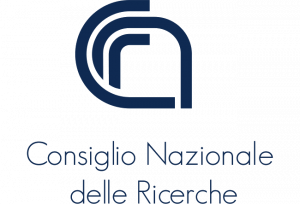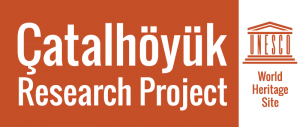
EXUS Software Ltd (United Kingdom)
EXUS Innovation is the Applied Research arm of EXUS Software Ltd, a global leader in the design, creation and marketing of enterprise software solutions and services. EXUS Innovation manages a portfolio of initiatives that aim to pave the way for the introduction and take up of emerging technologies. Within Emotive, EXUS will manage project administration, financial coordination and planning, quality management, dissemination and system integration.

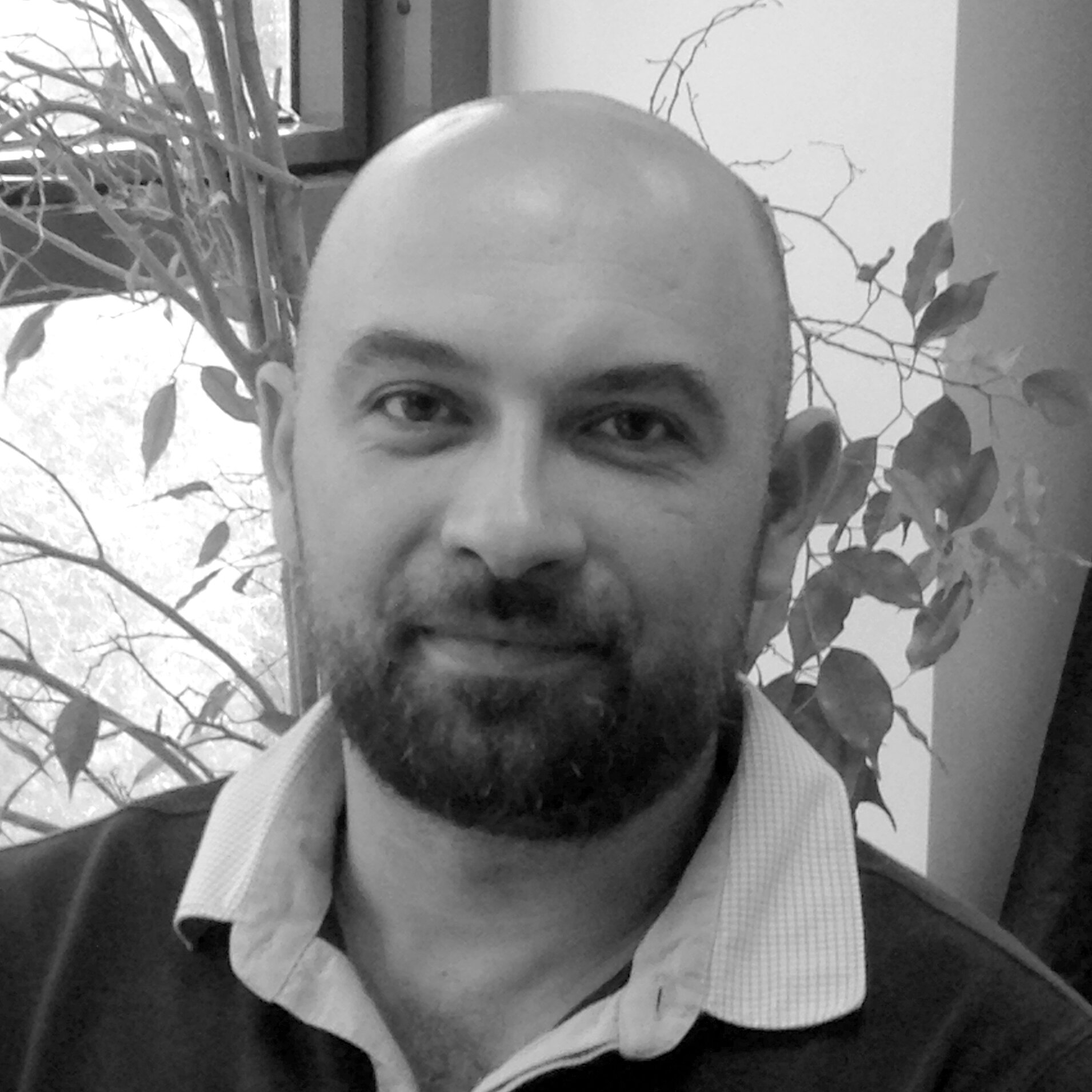
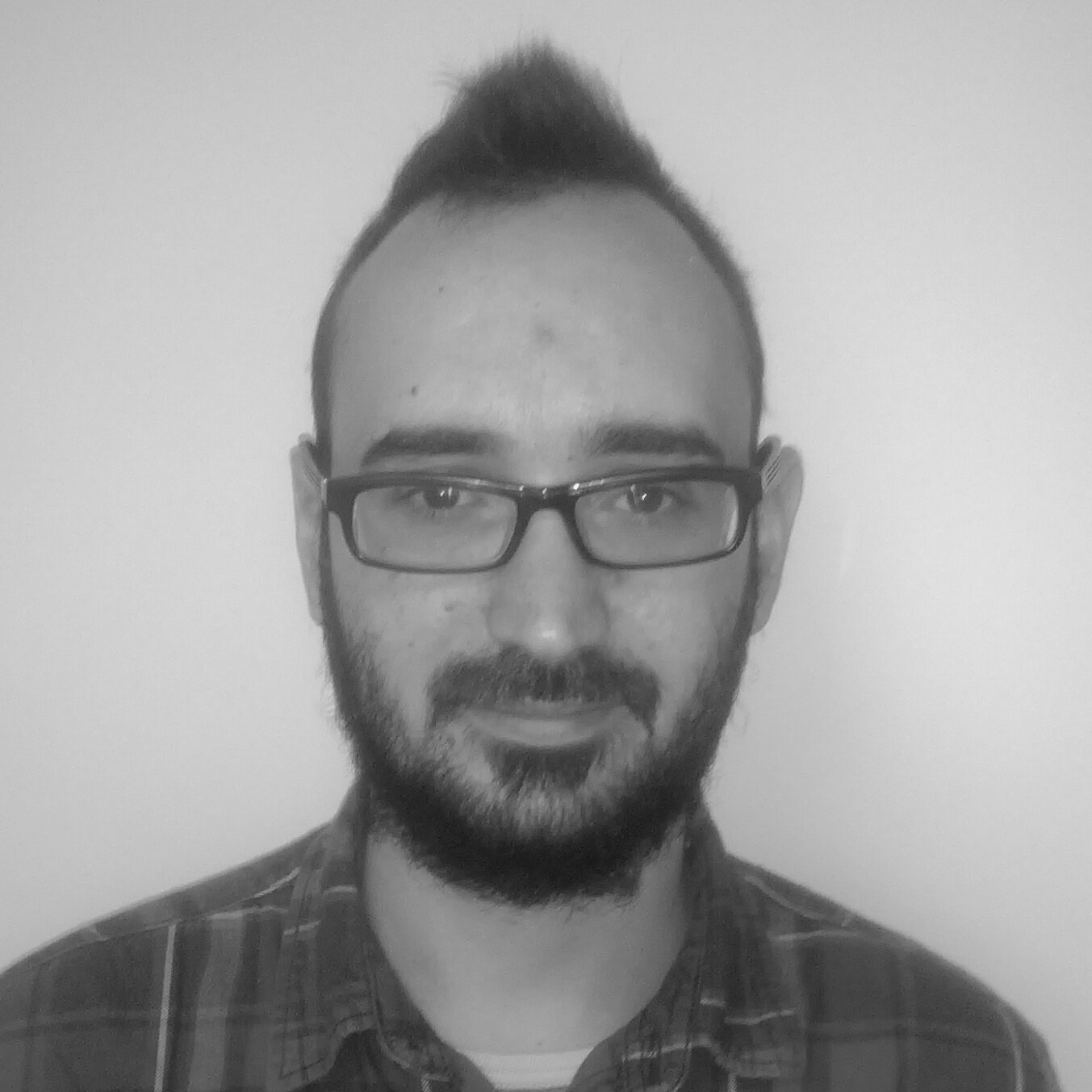
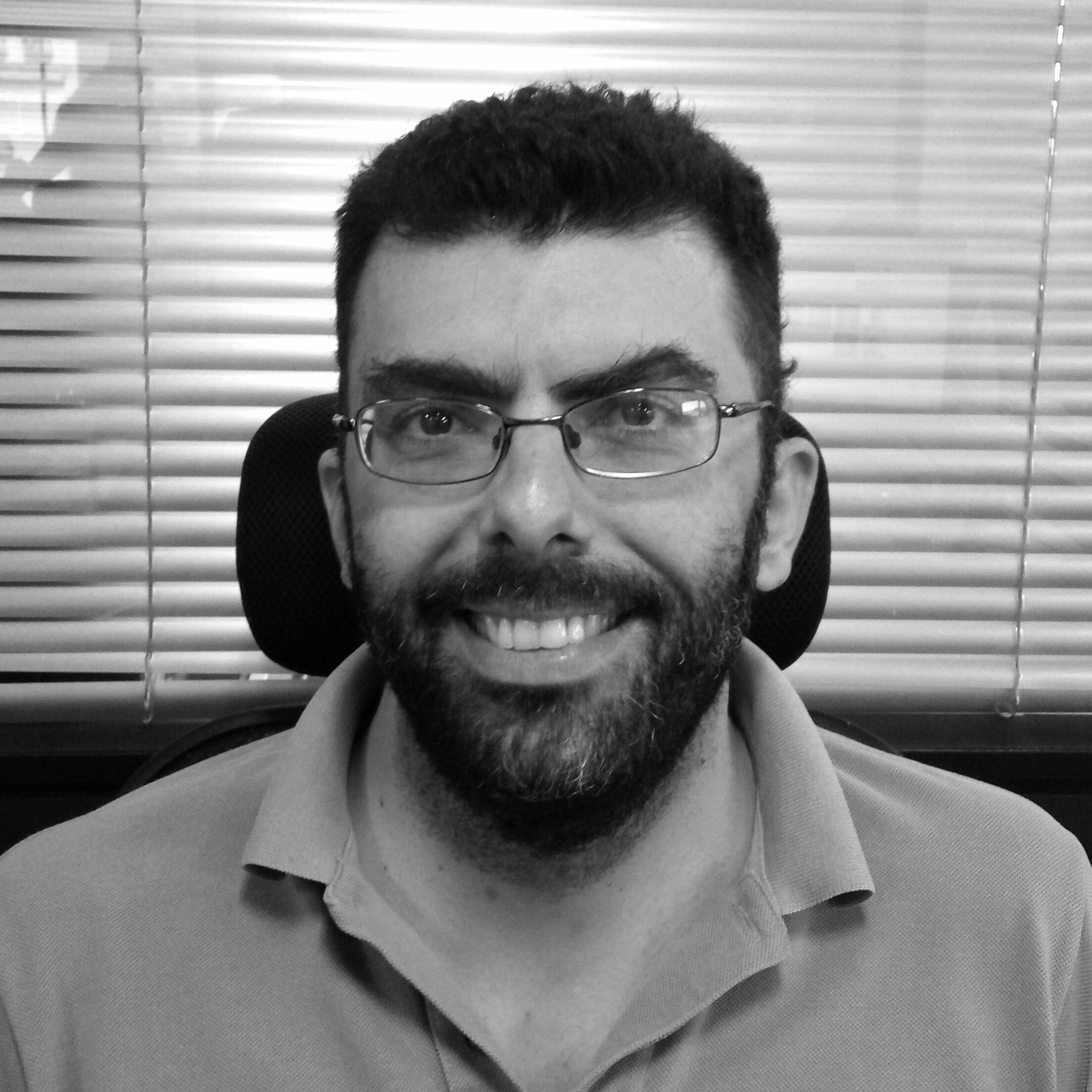
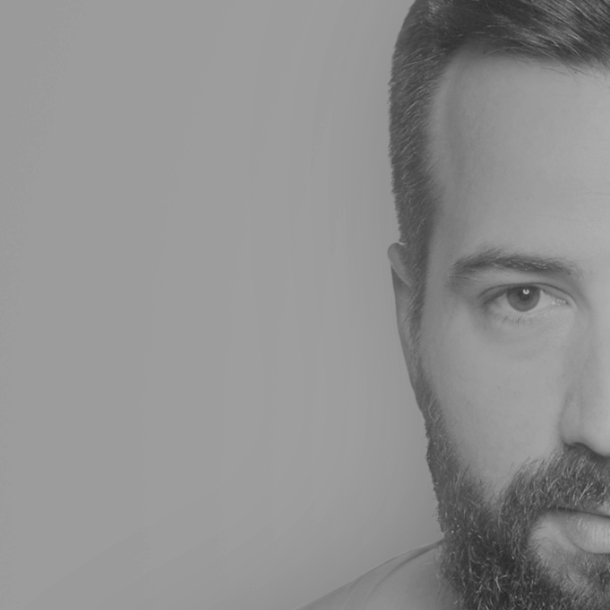
Ms Hara Stefanou
Project Coordinator (PC) and Operation manager mainly involved in the management and Quality Assurance of EMOTIVE (WP1), in Dissemination and Exploitation Activities (WP2) and supervising all other activities to ensure the smooth project execution.
Hara Stefanou is a Research Consultant at EXUS. She is involved in EU funded projects regarding Creativity and Learning. She holds an M.Sc. Degree in Medical Informatics and Biomedical Engineering and in Multimedia from the University of Crete, Greece and a B.Sc. Degree in Informatics and Telecommunications from the University of Athens, Greece. Her current research interests focus on creativity enhancement solutions, gamification, serious games and she has also obtained a gamification certificate from the University of Pennsylvania.
Dr. Dimitris Kanakidis
Coordinator at strategic level, Innovation and Exploitation manager
Dr. Dimitris Kanakidis is the Head of EXUS Innovation. He is overseeing the coordination and strategic steering of more than 15 on-going H2020 projects and an overall portfolio of 200+ active research partners. Previously he led the research activities of Net Technologies from 2007 to 2013 and its participation in several EU funded projects under FP6 and FP7. During that period, he also managed major commercial projects related to the realization of TETRA and WiMAX networks in Saudi Arabia and Greece. Before 2007 he worked as a researcher in the National Kapodistrian University of Athens participating in its activities under the FP5 program. He holds a BSc Degree in Physics, an MSc Degree in Telecommunications and a Ph.D. Degree in the area of Optical Communications, all from University of Athens, Greece. His research interests are in the fields of Wireless Communications, Security and Secure Optical Communications being the author of several published papers.
Mr. Dimitris Karamitros
Technical Leader
Dimitris Karamitros is a Software Engineer, specializing in mobile software development technologies, in EXUS, after joining the company in March 2012. Prior to joining EXUS, he was working as a PL/SQL developer in GNT S.A and was involved in several medium scale projects of the public sector (OTE, Ministry of Commercial Shipping). He holds an MSc Degree in Telecommunication & Network Systems from the Department of Informatics and Telecommunications, National and Kapodistrian University of Athens, as well as a B.Sc. in Electrical Engineering from the Technological Education Institute of Athens. During his BSc studies he was awarded twice a scholarship by the National Institute of Scholarships for his academic excellence and was involved for one year in a research project of the Division of Nuclear Physics and Particles, Department of Physics, University of Athens, aiding in the design and construction of a small animal PET prototype.
Mr. Giorgos Diles
Member of the development team
Giorgos Diles joined EXUS in August 2019. His responsibilities include technical project management and software development for EU funded projects. Giorgos obtained his Diploma from the Electronic and Computer Engineering Department of Technical University of Crete, Greece in 2010. In 2013, he received his Master Degree in “Computer Science and Technology” in Computer Engineering and Informatics Department of Patras University, Greece and in 2017, he received his PhD from the same department. He has taken part in several Interreg Europe and H2020 projects and his main research interests include Data Fusion and back end development technologies.
Mr Dimitris Alexandrakis
Member of the development team
Dimitris Alexandrakis has joined the company in March 2016 as a Software Engineer. He is now a part of the Mobile & Web delivery department focusing mainly in the analysis and development of applications for the Android Mobile Platform. He has actively participated and implemented several applications for major clients including Animal Learning Research Center of Newcastle, Vodafone (Greece & Albania), European Reliance and the EXUS Innovation department. He holds an MSc in Civil Engineering with Structural Design and a B.Sc in Computer Science with Game Technology (Class 1) from the City University of London. His is currently interested and researching different AI and Automation technologies as well as OCR.
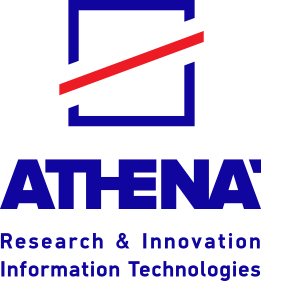
Athena Research and Innovation Center in Information Communication & Knowledge Technologies (Greece)
The “ATHENA” Research Center in Information, Communication and Knowledge Technologies was founded in 2003. Headquartered in Athens, its main aims include the development of scientific and technological research in information, communication and knowledge technologies and the promotion of those technologies in the cultural, industrial and services sectors. Within Emotive, Athena will focus on user modelling & personalization, user-centred design, prototype evaluation, and design and implementation of interactive storytelling experiences.
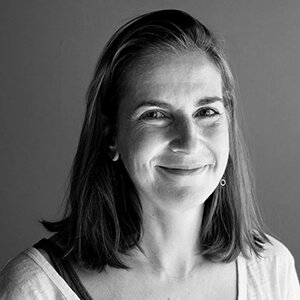
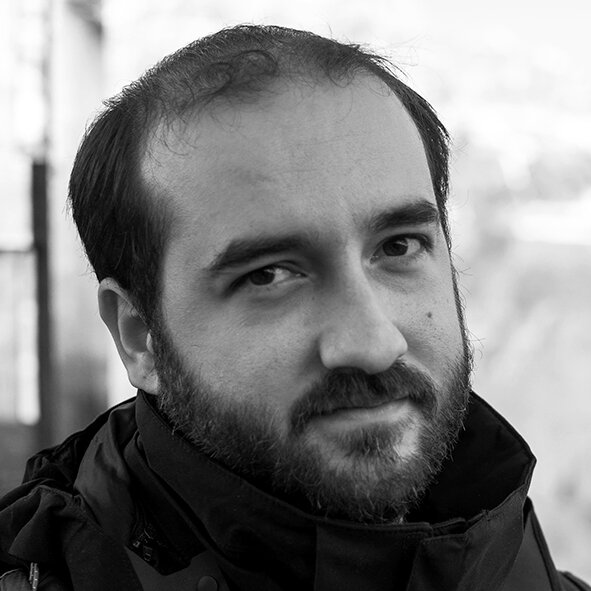

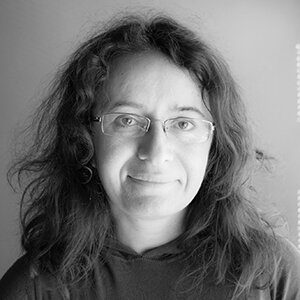


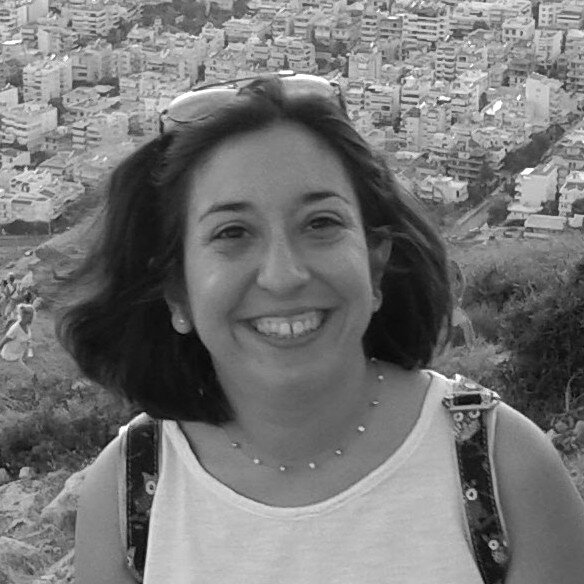

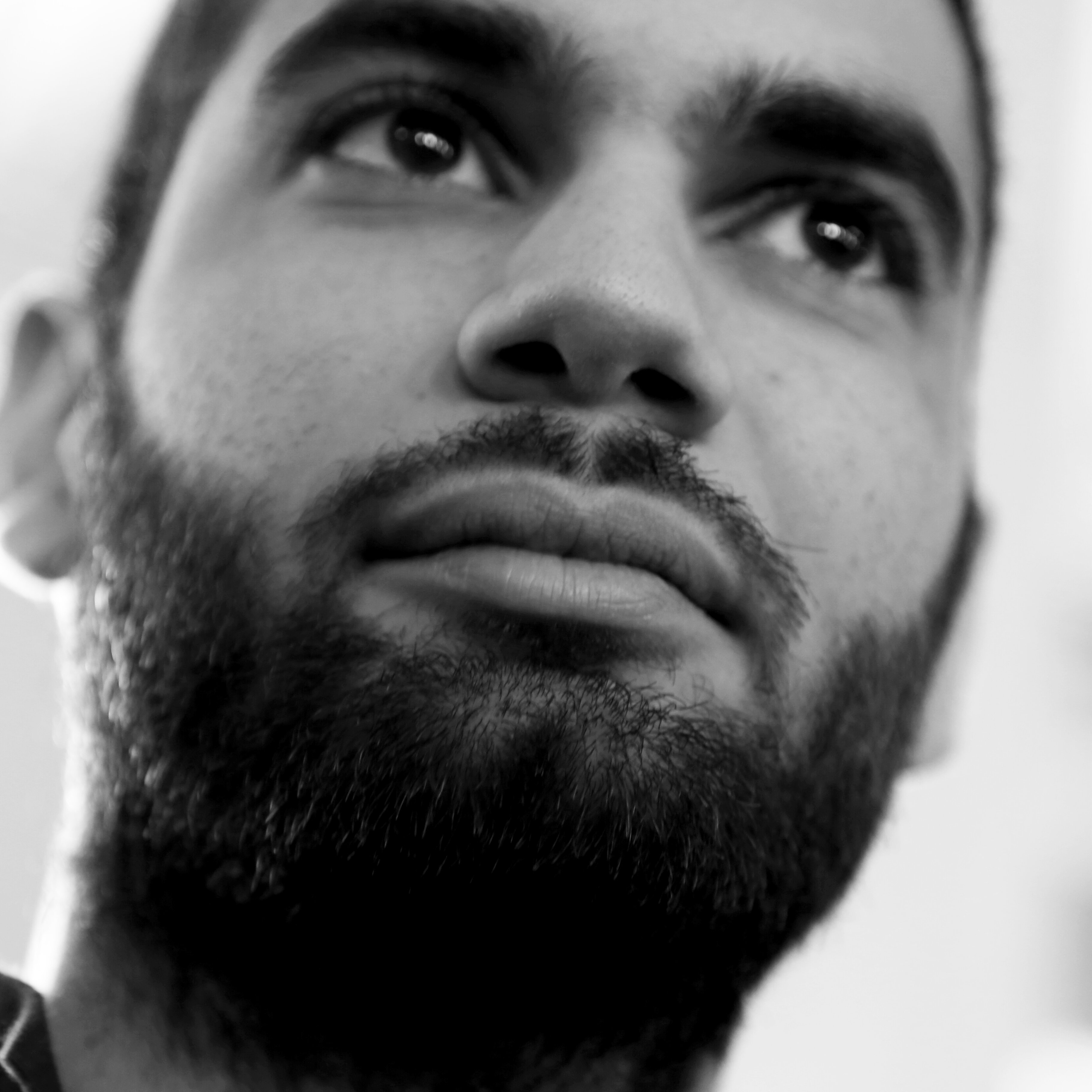
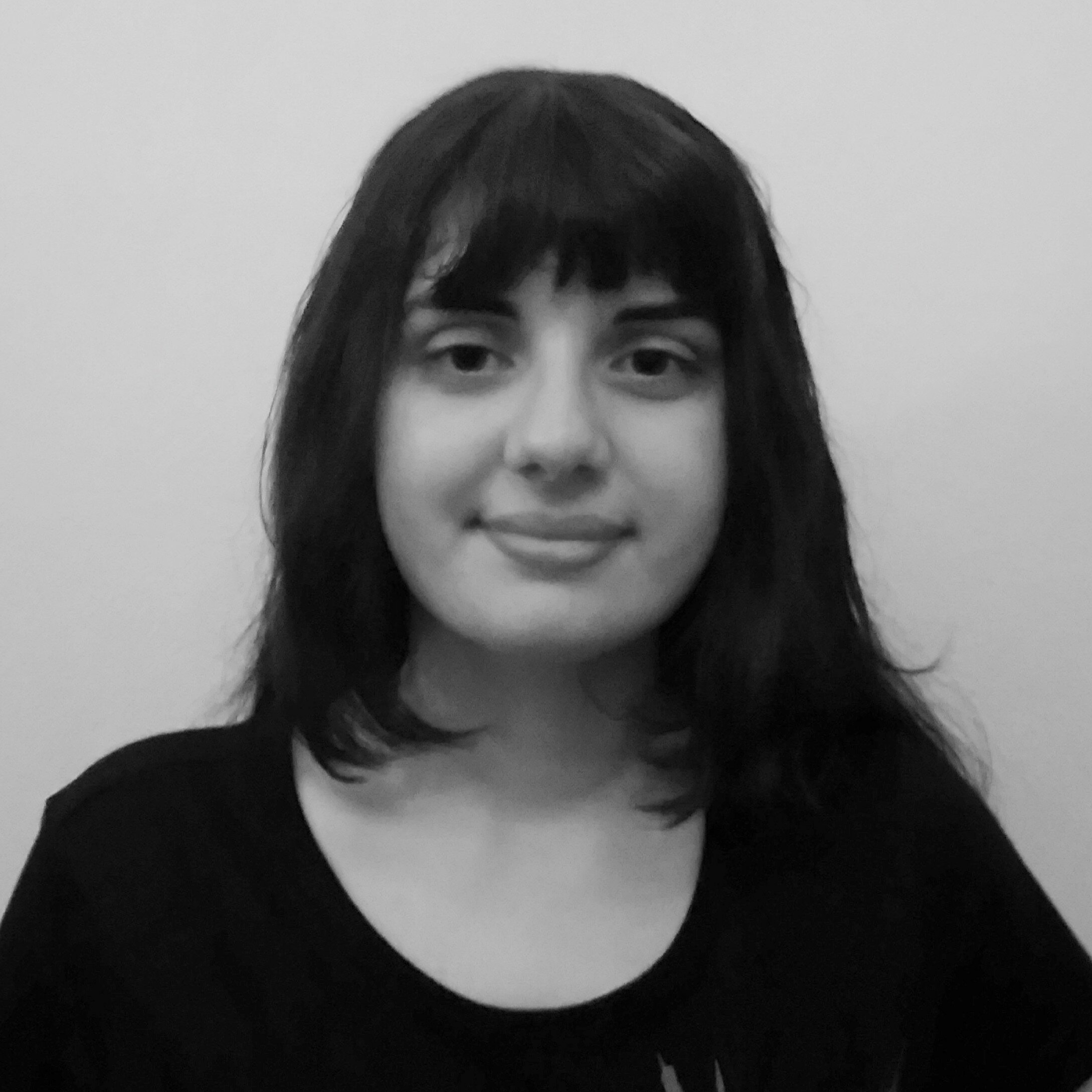
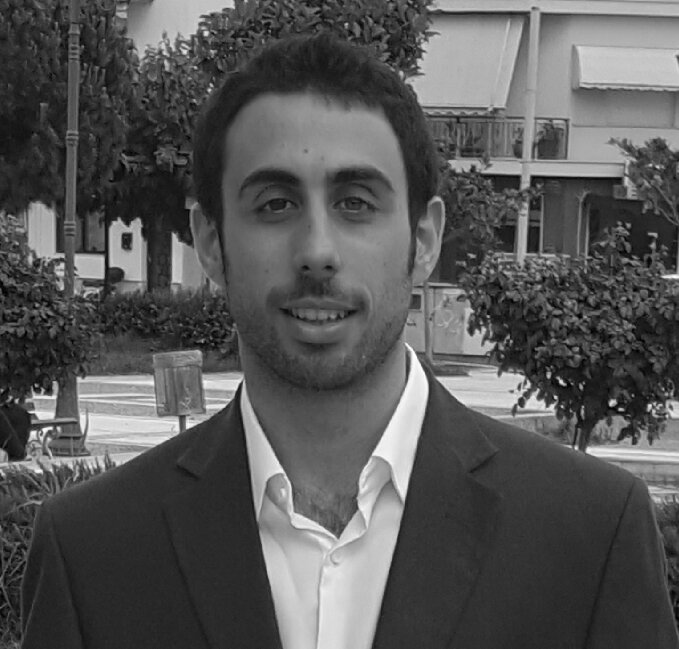
Dr Maria Roussou
User Group Manager
Dr. Maria Roussou is an Assistant Professor in Interactive Systems (i.e. Human-Computer Interaction, Virtual Reality, Videogames) at the Department of Informatics & Telecommunications, National and Kapodistrian University of Athens. She holds a PhD in Computer Science from the University of London (UCL), a Master in Fine Arts (MFA) degree in Electronic Visualization from the School of Art and Design, University of Illinois at Chicago, an MSc in Electrical Engineering & Computer Science from the same university, and an undergraduate degree in Applied Informatics from the Athens University of Economics and Business. In 2003 she founded and co-directed (until 2016) “makebelieve”, a consulting company designing digital experiences for museums. Previously, she established (in 1998) and directed (until 2003) the Virtual Reality Department at the Foundation of the Hellenic World. Her recent research projects include the CHESS Project (02/2011-04/2014), in which she led the User-Centered Design & Scenarios work, and the MAGELLAN Project (2013 – 2017), in which she worked on usability and user experience evaluation. She is an active member of a number of professional organizations, such as ACM (also as Chair of the Greek ACM SIGCHI Professional Chapter since 2011), IEEE, and ICOM. Maria has taught (since 2004) the ‘Museums and New Technologies’ graduate course at the University of Athens and is the recipient of the 2013 Tartessos Award for her contribution in Digital Heritage and Virtual Archaeology.
In EMOTIVE, Dr Roussou is involved in user requirements elicitation through participatory and other methods (WP3), design of visitor experiences (WP3), design of user interfaces of the various tools (e.g., WP4) and of the Experiencing System (WP7), the design and implementation of the EMOTIVE evaluation with authors and visitors (WP9), as well as other tasks and project activities. Dr Roussou is also the User Group Manager.
Manos Karvounis
Technical Manager / ATHENA Team
Manos Karvounis is a PhD candidate at the University of Athens, Department of Informatics and Telecommunications, where he also received his B.Sc. in Computer Science and M.Sc. on Advanced Information Systems. His research interests include graph processing, graph databases, recommender systems, and personalisation. He has been a researcher at MaDgIK lab since 2009 and has previously participated in the EU-funded projects OpenAIRE and CHESS. Mr Karvounis will act as a Technical Manager in Emotive and as a Software Engineering Manager for the ATHENA development team, and will be involved in the implementation of the Storytelling and Personalisation Engines, as well as participate in the other tasks and project activities.
Prof Yannis Ioannidis
Research Coordinator
Prof. Yannis Ioannidis is currently a Professor at the Department of Informatics and Telecommunications of the University of Athens. In early 2011 he also became the President and General Director of the ATHENA Research and Innovation Center; in addition, since April 2011, he serves as the Acting Director of the Institute of Language and Speech Processing of ATHENA. He received his Diploma in Electrical Engineering from the National Technical University of Athens in 1982, his MSc in Applied Mathematics from Harvard University in 1983, and his Ph.D. degree in Computer Science from the University of California-Berkeley in 1986. Immediately after that he joined the faculty of the Computer Sciences Department of the University of Wisconsin-Madison, where he became a Professor before finally leaving in 1999. His research interests include database and information systems, personalization and social networks, data infrastructures and digital libraries & repositories, scientific systems and workflows, eHealth systems, and human-computer interaction, topics on which he has published over one hundred articles in leading journals and conferences. He also holds three patents. Yannis is an ACM and IEEE Fellow (2004 and 2010, respectively) and a recipient of several awards for teaching excellence. Yannis has been a (co-) principal investigator in over thirty research projects funded by various government agencies (USA, Europe, Greece) or private industry.
Prof Ioannidis will be involved in the overall technical supervision of WP5 and WP7, with specific involvement in the WP5 tasks related to profiling and personalization and adaptation.
Dr Akrivi Katifori
Personalisation Researcher
Dr Akrivi Katifori is a researcher in information visualization, profiling and personalization, interactive digital storytelling, and human-computer interaction. She holds a PhD degree (her dissertation titled “An intelligent system for managing historical archive documents”), an M.Sc. in Signal Processing for Telecommunications and Multimedia (2003), and a B.Sc. in Informatics and Telecommunications (2000), all from the University of Athens. She works as a researcher in the Management of Data, Information, and Knowledge Group, Department of Informatics & Telecommunications of the University of Athens. Dr Katifori has participated in several EU and national RTD projects since 1999, mostly in the areas of virtual museums and digital libraries, working initially as a programmer and later as an analyst and designer as well as a project manager. She has authored several papers in different research areas of computer science. Recently (2011-2014), Dr. Katifori worked on the user interface and interaction design, authoring, and usability and user experience evaluation of the CHESS project (https://www.chessexperience.eu/).
Dr Katifori will be involved in user requirements elicitation (WP3), in the design of the scenarios and authoring of the experiences (WP3), in tasks of WP5, especially those focused on collaborative storytelling, and in EMOTIVE Evaluation (WP9), as well as participate in the other tasks and project activities.
Dr Stavros Vassos
Artificial Intelligence Researcher
Stavros Vassos is passionate about Artificial Intelligence (AI) as an interface to the modern computing world. He holds a MSc and PhD in Computer Science from the University of Toronto in Canada (2009, 2004), and a Diploma in Electrical and Computer Engineering from the National Technical University of Athens in Greece (2002). During 2012-2016 he worked as an Assistant Professor in the Sapienza University of Rome in Italy. In 2016 he founded Helvia.io, a startup that develops custom AI business solutions. In 2008 he received the “AAAI Outstanding Paper Honorable Mention Award” from the “Association for the Advancement of Artificial Intelligence (AAAI)” for the paper “On the Progression of Situation Calculus Basic Action Theories: Resolving a 10-year-old Conjecture”. In 2017 he received the “Seal of Excellence” for the proposal “StoryBots: Verifiable Storytelling in Conversational Interfaces” under the Horizon 2020’s Marie Skłodowska-Curie actions. He serves regularly at the PC of AI-related conferences, including IJCAI, AAAI, ECAI, AAMAS, KR, and videogame-related conferences such as FDG, CIG, AIIDE. He teaches and works in a variety of scenarios related to Interaction Design, Internet of Things, Videogames, and Chatbots.
Vassilis Kourtis
Software Engineer
Vassilis Kourtis is a research associate and software engineer at the Athena Research and Innovation Center in Athens. He holds an Electrical and Computer Engineering Diploma from the National Technical University of Athens and is currently a M.Sc. student at the Department of Communication and Media Studies of the University of Athens, where he studies Digital Communication Media and Interactive Environments. His interests include user centered design and development of interactive environments, mixed reality experiences, interactive digital storytelling, as well as gamified experiences and serious games. He has previously participated in the EU-funded project CHESS, where he designed and implemented mobile and web applications for personalised interactive storytelling experiences in cultural sites. He has also worked as a freelancer software developer, creating educational games for students of primary and secondary school. Mr. Kourtis will work as a software engineer on the front-end aspects of EMOTIVE. He will be involved in the designing and programming process of the experiencing systems, as well as in testing and evaluation of the aforementioned tools.
Myrto Koukouli
Software Developer & Experience and Content Designer
Myrto Koukouli is a software developer and research associate at the Athena Research and Innovation Center in Athens. She holds a B.Sc. in Archaeology from the National and Kapodistrian University of Athens and currently pursuing an M.Sc. in Technologies of Informatics and Telecommunications at the Dep. of Informatics and Telecommunications of the same university. Her responsibilities involve the design and development of an automated questioning and answering system for the EMOTIVE platform, as well as the evaluation and testing of this tool. She also participates in the design of content and experiences in the context of the project.
Ektor Vrettakis
Software Engineer
Ektor Vrettakis is a research associate and software engineer at the Athena Research and Innovation Center in Athens. He holds a B.Sc. in Informatics and Telecommunications from National and Kapodistrian University of Athens and is currently a M.Sc student at the Department of Informatics and Telecommunications of the University of Athens, where he studies Computing Science. Since 2015 he is a research associate of MadGik lab and currently participates in the EU-funded project EMOTIVE, focusing on mobile digital storytelling for cultural heritage sites. His scientific interests include digital culture, digital interactive storytelling, human computer interaction, functional programming, compiler design and web technologies. Mr. Vrettakis will act as a software engineer on the front-aspects of EMOTIVE. His responsibilities will involve the designing and programming of authoring and experiencing processes, as well as well the evaluation and testing of those tools.
Chris Lougiakis
Software Engineer
Chris Lougiakis is a research associate and software engineer at the Athena Research and Innovation Center in Athens. He holds a B.Sc. in Informatics and Telecommunications from the National and Kapodistrian University of Athens. His interests include development of usable and easy to learn user interfaces, engaging user experiences, interactive digital storytelling, as well as games in education. For his undergraduate thesis he designed and implemented a web application that worked as an authoring tool for interactive digital narratives in cultural sites as part of the EU-funded project CHESS. He has also worked for one year as a full stack web developer and IT support for the S’cool LAB Team of the Education Department at CERN. Since 2017 he is a research associate of MadGik lab and currently participates in the EU-funded project EMOTIVE, focusing on digital storytelling for cultural heritage sites. Mr. Lougiakis will act as a software engineer on the front-end aspects of EMOTIVE. He will be involved in the designing and programming process of the authoring and experiencing systems, and also the evaluation and testing of these tools.
Dimitra Petousi
Experience and Content Designer
Dimitra Petousi is an experience and content designer at the Athena Research and Innovation Center in Athens. She holds a B.Sc. in Library Science and Information Systems from the Τechnological Educational Institution of Athens and an M.A. in Museum Studies from the National and Kapodistrian University of Athens. Her responsibilities involve the design of content for experiences, the research, retrieval and processing of information for said content and the evaluation of experiences.
Stamatis Christoforidis
Software Engineer
Stamatis Christoforidis is a research associate and software engineer at the Athena Research and Innovation Center in Athens. He holds a B.Sc. and a M.Sc. on Advanced Information Systems in Informatics and Telecommunications from National and Kapodistrian University of Athens. He has been a researcher at MaDgIK lab since 2014. His research interests include graph processing and graph databases. Mr. Christoforidis will act as a software engineer on the front-end aspects of EMOTIVE. His responsibilities will involve the designing and programming of authoring and experiencing systems systems, as well as the evaluation and testing of these tools.

University of York (United Kingdom)
York is renowned as a young research-led University, founded in 1963. Its Department of Archaeology is one of the leading teaching and research departments in the UK, being ranked 2nd for the wider economic and social impact of its research and 4th overall in the 2014 Research Assessment Framework. Within Emotive, York will contribute to a range of user-centred design and production activities, from eliciting requirements and co-designing scenarios with cultural partners & stakeholders through content design and production.
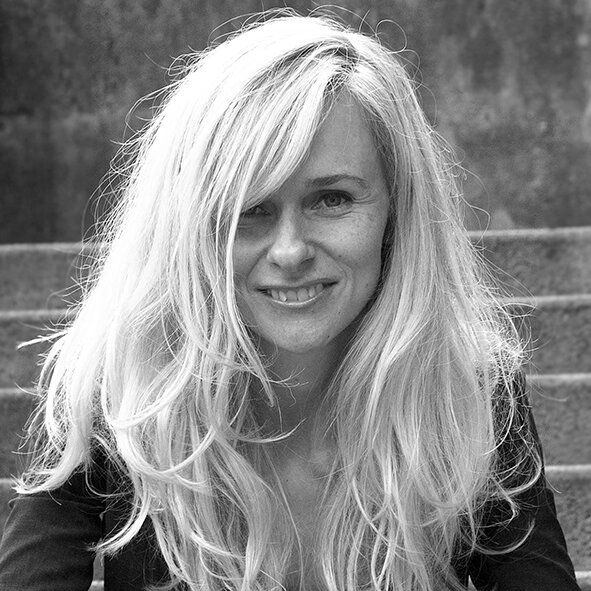

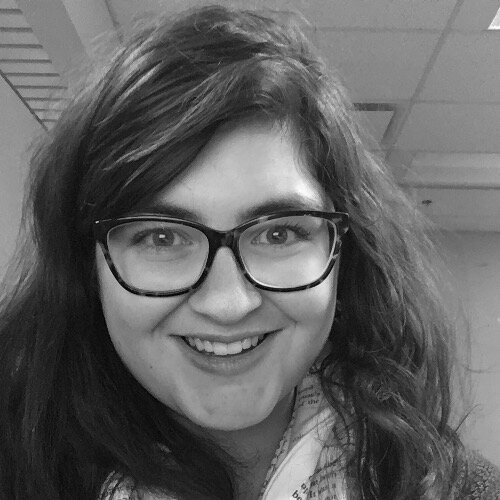
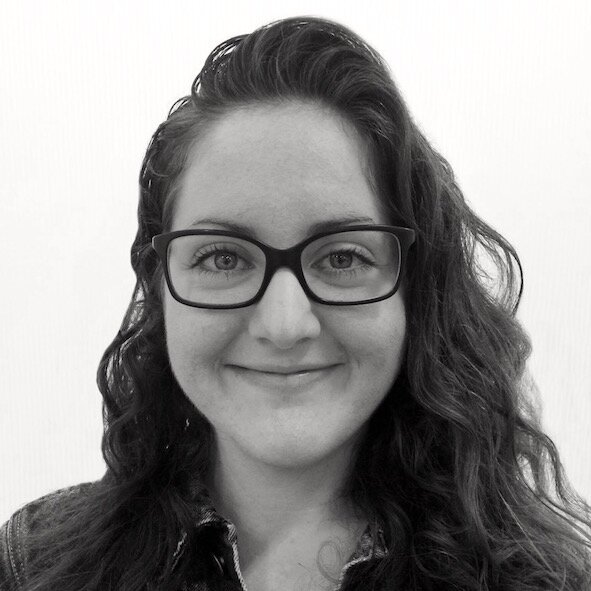
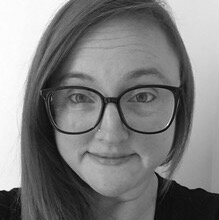

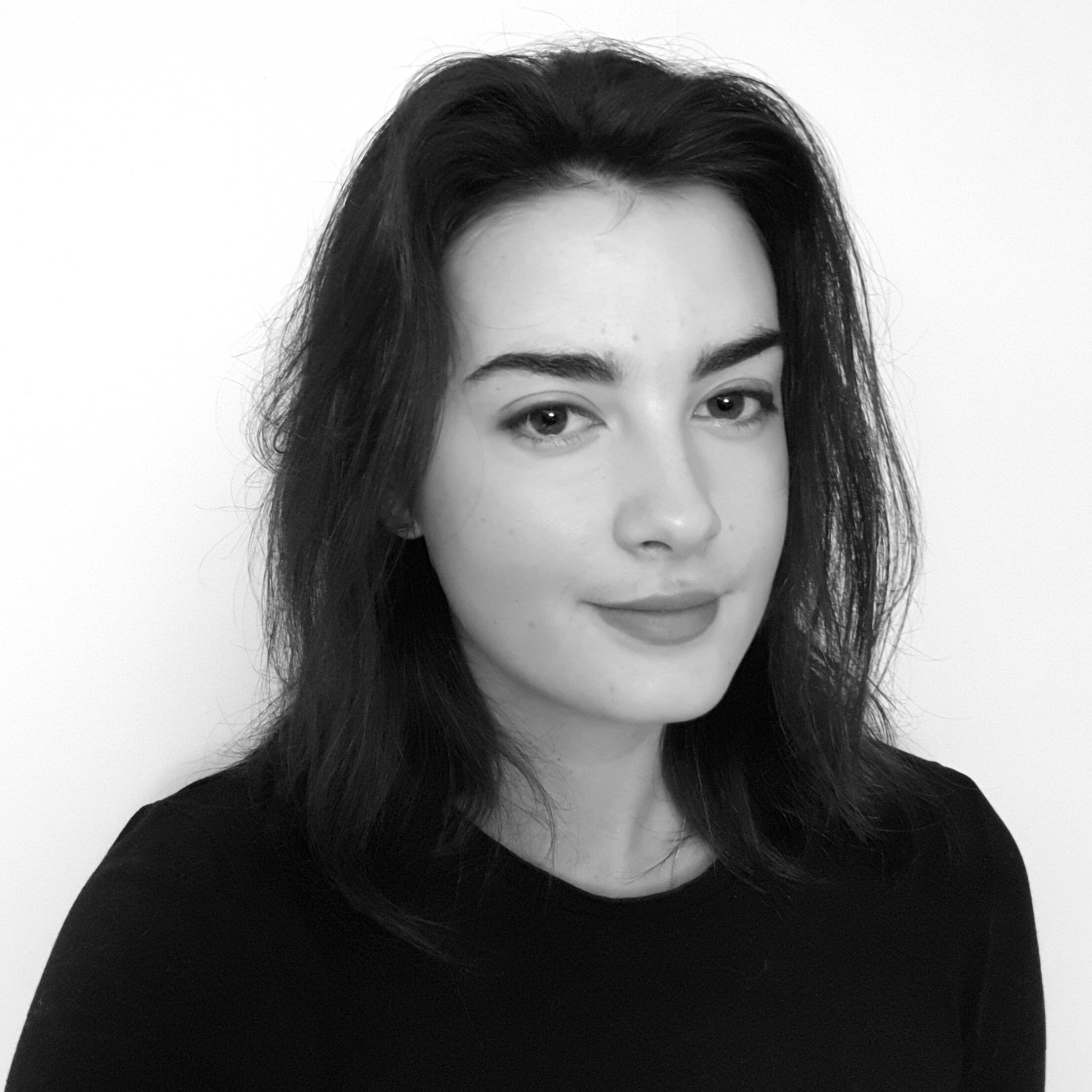
Dr Sara Perry
Work Package 3 (User-Centred Design and Production) Leader and Ethics Manager
Dr Sara Perry is Director of Studies of Digital Heritage, Director of Studies of Archaeological Information Systems and Lecturer in Cultural Heritage Management at the University of York, UK. Her research centres upon the development, circulation and evaluation of analogue and digital media for archaeology and heritage sites and audiences. Sara leads a series of heritage interpretation programmes at archaeological sites around the world: she is Director of the Visualisation Team at the Neolithic site of Çatalhöyük in Turkey (www.catalhoyuk.com); she is Co-Investigator on the 2-year Memphis Site and Community Development Project at the UNESCO site of Memphis, the capital of Ancient Egypt; and she coordinates the annual heritage fieldschool at the University of York in England, variously based at the Mesolithic site of Star Carr, the historic site of Breary Banks, and the Roman site of Malton. Sara is the Digital Reviews editor for the Society for American Archaeology’s journal Advances in Archaeological Practice. She sits on the management committee of the EU COST Action ARKWORK, and is a Working Group member of the EU Coordination and Support Action ViMM: Virtual Multimodal Museum. She is a judge on (and former chair of) the British Archaeological Awards’ Best Public Presentation of Archaeology award. Sara is a coordinator of the Heritage Jam (www.heritagejam.org), as well as of the University of York’s Heritage & Play series and its YOHRS: Heritage Research Seminars; and she acts on the advisory committee of UCL’s Centre for Audio-Visual Study and Practice in Archaeology. She has also been honoured with a series of teaching and learning distinctions for her innovations with digital technologies, including shortlisting for the Times Higher Education Award for Most Innovative Teacher of the Year, and recognition as one of JISC’s 50 Most Influential Higher Education Professionals Using Social Media.
Katrina Gargett
Katrina is an MA Cultural Heritage Management student at the University of York. Her research interests centre on the visual representation of archaeology and the use of digital media for heritage outreach. She also has an interest in the conservation of sites, the tensions between this and public presentation, as well as the challenge of managing historic sites. Her previous research as part of her undergraduate dissertation at the University of York focused on the short-term impact of World Heritage Site status on key stakeholders at Çatalhöyük, Turkey. Resulting from this she has led in the digitising and analysis of visitor data at the site for the last three field seasons. Using her knowledge of visitor motivations and the visitor demographic in conjunction with the EMOTIVE team, she has aided in the evaluation of a digital collaborative experience on the site.
Katrina has working experience on a number of other heritage projects including, the two-year Memphis Site and Community Development Project at the UNESCO site of Memphis, Egypt (Project Assistant), and as a Media Collaborator for Issue 49 of Aktüel Arkeoloji, Turkey’s leading archaeology magazine. Her current work at one of York’s leading cultural heritage attractions, York Minster, has further developed her interest in the challenges of engaging different audiences through storytelling, and managing the tensions between these. She aims to develop research in this area further during her MA, alongside the EMOTIVE team.
Sierra McKinney
Sierra McKinney studied Anthropology at the University of Victoria in Canada, and is currently pursuing an MSc in Digital Heritage at the University of York. She is interested in the use of digital technologies to create accessible and engaging heritage education for schools. Sierra is assisting in the development of offsite digital experiences for the archaeological site of Çatalhöyük.
Kristen O’Connor
Kristen O’Connor is a MSc Digital Heritage student at the University of York. Her interests lie in both the theoretical and practical applications of innovative technologies in galleries, libraries, archives and museums. Her research focuses primarily on VR, AR, 3D printing, and photogrammetry, as well as on open access.
Kristen’s working experience in heritage institutions includes a curatorial internship at the Bessie Smith Cultural Center, archiving at the University of Tennessee’s Special Collections Department, and most recently volunteering with the Portable Antiquities Scheme. She also spent two years working in a public makerspace at the Chattanooga Public Library, where she provided free training and assistance on the use of 3D printers, VR headsets, laser cutters, Adobe programs, and much more. As part of the EMOTIVE Team, Kristen is working on the Çatalhöyük VR experience to establish a theoretical framework of interactivity and social connectivity, as well as to help finalize the use case.
L. Meghan Dennis
L. Meghan Dennis is a PhD researcher at the University of York working in digital archaeological ethics and the impacts of ethical representations of archaeology in interactive media (www.archaeoethics.com). Meghan is a member of the Visualisation Team at the Neolithic site of Çatalhöyük in Turkey (www.catalhoyuk.com), and a member of the Co-Production Networks for Community Heritage (CONCH) project in Tanzania. Previously, Meghan worked as a research archaeologist in Belize, Mexico, and Peru, ran a consultancy in the United States focusing on archaeology and historic preservation, and was a narrative designer and community manager within the video-game industry. Combining her interests in public education, ethical practice, and games media, Meghan aims to develop further research in how the use of non-academic interactive media can influence youth participation in ethical interactions with heritage and archaeology.
Currently, Meghan is a member of the Media Relations Committee and the Committee on Ethics with the Society for American Archaeology (www.saa.org), and is an ethics officer with the Computer Applications & Quantitative Methods in Archaeology organization (www.caa-international.org), where she was involved in designing and implementing the organization’s first code of ethics. Meghan is a Registered Professional Archaeologist (www.rpanet.org) and serves on the RPA’s Field School Certification committee.
Dr Veysel Apaydin
Dr Veysel Apaydin completed his PhD in Cultural Heritage at UCL. He’s researched in the uses and interpretation of heritage, and heritage education. Veysel is involved in multiple aspects of the EMOTIVE and his research focuses on the VR, the on-site experience and developing schoolkit.
Charlotte Bishop
Charlotte Bishop is currently a MSc Digital Heritage student at the University of York. She is interested in the opportunities digital technologies provide when visualising the past and how we can use these formats to engage with the public and wider audiences.
Her undergraduate degree was in Archaeology and she has worked as a Commercial Archaeologist since she graduated. Her research focus is on the archaeology itself, primarily the material culture, but she is also interested in architectural conservation and public engagement. As part of the EMOTVE Team, specifically the 3D moulding aspect, she hopes to explore the challenges faced by material culture concerning public engagement and discuss approaches and methods to overcome them.
INRIA (Institut National de Recherche Eninformatique et Automatique) (France)
Inria, the French National Institute for computer science and applied mathematics, promotes “scientific excellence for technology transfer and society”. The INRIA project-team GRAPHDECO will participate in EMOTIVE. The team specializes in developing novel techniques for computer assisted design and for novel algorithms for computer graphics treating uncertain and heterogeneous data. On the Emotive project, INRIA will lead research into novel methods for virtual display and reproduction of sites and artefacts.


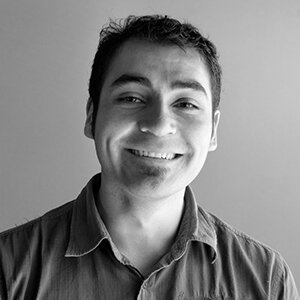

Dr George Drettakis
Research coordinator
George Drettakis graduated from the Dept. of Computer Science in Crete, Greece, where he participated as an undergraduate in European projects at ICS/FORTH. He obtained an M.Sc. and a Ph.D., (1994) at the Dept. of C.S. (Dynamic Graphics Project) at the University of Toronto, Canada, under the supervision of Eugene Fiume. He was an ERCIM postdoctoral fellow in Grenoble, Barcelona and Bonn (94-95). He obtained a permanent Inria researcher position in the iMAGIS group in Grenoble in 1995. He obtained a “Habilitation” degree at the University of Grenoble (1999). Since 2000 he is with INRIA Sophia-Antipolis, where founded and led the REVES research group (2002-2014), and has created the group GRAPHDECO (2015-). He holds the position of Inria DR1 (full professor equivalent) since 2008. He received the Eurographics (EG) Outstanding Technical Contributions award in 2007 and is an EG fellow. He was technical papers chair of SIGGRAPH Asia 2010, was co-editor in chief of IEEE Trans. on Computer Graphics and Visualization (2011-2014) and leads the EG working group on Rendering. He has worked on many different topics in computer graphics, with an emphasis on rendering including lighting and shadow computation. 3D audio and in particular perceptually-driven algorithms and more recently I image-based rendering and relighting, textures, perception for graphics, weathering simulation, virtual reality and 3D interaction. He coordinated the EU projects CROSSMOD and SIMULGEN (phase I), and was Inria PI for the EU projects CREATE, VERVE and CR-PLAY. Dr Drettakis will lead WP6 and will be responsible for the research on image-based and mixed rendering techniques.
Julien Philip
Julien Philip is a first year Ph.D. student at Inria Sophia Antipolis under the supervision of George Drettakis. He obtained an Engineer’s degree in computer science at Telecom ParisTech and an M.Sc. in applied mathematics for vision and machine learning at ENS Cachan (2016). He is interested in image inpainting and light modifications for computer graphics. He is working on texture synthesis and image-based rendering techniques which will be integrated into WP6.
Sebastian Vizcay
Sebastian Vizcay is a research engineer working on integrating research results of Inria into the EMOTIVE framework, and providing general integration support for the project.
Adrien Bousseau
Adrien Bousseau did his PhD from 2006 to 2009 at Inria Grenoble under the supervision of Joëlle Thollot and François X. Sillion. During his PhD he also did research internships at Adobe’s Advanced Technology Labs and at MIT CSAIL. He did his postdoc at UC Berkeley, working with Maneesh Agrawala and Ravi Ramamoorthi. He joined Inria as a permanent researcher in 2010 and obtained his “Habilitation” degree in 2015. Adrien Bousseau does research on image creation and manipulation, with a focus on drawings and photographs. Most notably, he worked on image stylization, image editing and relighting, vector graphics and sketch-based modeling. Adrien Bousseau received one of the three Eurographics PhD award in 2011 and a young researcher award from the French National Research Agency (ANR) in 2016. He recently received an ERC Starting Grant to work on drawing interpretation for 3D design.
Consiglio Nazionale delle Ricerche (Italy)
CNR-ISTI is an institute of CNR. Its Visual Computing Lab (VCL) research unit has been active in visualisation and computer graphics since 1984. Current research focuses on the design of 3D digitization/scanning, geometric data processing, visualization systems, multi-resolution representation and rendering of huge datasets, 3D Web Applications. VCLab has a long track record in the use of 3D graphics for Cultural Heritage applications, with important collaborations with CH institutions at national and international level. It has participated in a number of EU and national projects and has solid experience in the design of open source systems (e.g. MeshLab and the recent 3DHOP family of web-based visualizers).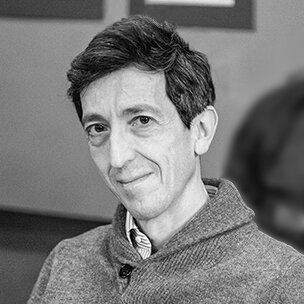
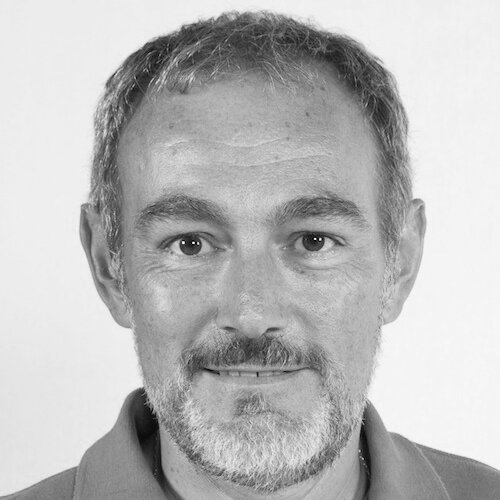
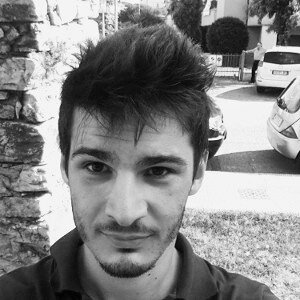


Dr Paolo Cignoni
Research Coordinator
Dr Paolo Cignoni is a Senior Research Scientist with CNR-ISTI. He received a Ph.D. Degree in Computer Science at the University of Pisa in 1998. He has been awarded “Best Young Researcher” by the Eurographics association in 2004. His research interests cover many Computer Graphics fields like geometry processing, 3D scanning data processing, digital fabrication, scientific visualisation and digital heritage. He teaches the main 3D Graphics course at the University of Pisa since more than 10 years. He started and still leads the development of MeshLab. He has published more than one hundred papers in international refereed journals/conferences and has served in the program committee of all the most important conferences of Computer Graphics. He is member of Eurographics Executive Committee, and is in the Editorial Board of IEEE TVCG, Computer Graphics Forum, and ACM Journal on Computing and Cultural Heritage.
Dr Roberto Scopigno
Research Associate
Dr Roberto Scopigno graduated from the University of Pisa in 1984. He is a Research Director with CNR-ISTI and leads the Visual Computing Lab (VCL). He has been engaged in research projects concerned with scientific visualisation, multi-resolution technologies, 3D range digitization, and CH applications. He has published more than 200 papers in international journals or conferences (with GS h-ind. 47). Roberto has been responsible person for CNR-ISTI for more than 15 EC projects. He has been ICP Co-Chair of several international conferences. He served as Chair of the Eurographics Association (2009-2010), Editor in Chief of the Int. Journal Computer Graphics Forum (2001-2010) and member of the ERC PE6 panel (ICT panel); he is Editor in Chief of the ACM J. on Computing and Cultural Heritage. He has been the recipient of the “Outstanding Technical Contribution Award” issued by the Eurographics Association in 2008, the “Tartessos Award 2011”, issued by the Spanish Society on Virtual Archeology (SEAV) and of the “Distinguished Career Award” issued by Eurographics in 2014.
Manuele Sabbadin
PhD Student
Manuele Sabbadin is a second year Ph.D. student working on point cloud rendering. Currently his work is focused on PBGI algorithms for relighting of virtual objects from real environments.
Dr. Gianpaolo Palma
Dr. Gianpaolo Palma is a post-doc at CNR-ISTI. He received a PhD in Computer Science from the University of Pisa in 2013 working on appearance acquisition and rendering. His current research interests are the analysis and visualization of temporal 3D data. Into the Emotive framework, he will be involved in the VR application for the appearance enhancement of 3D printed replicas.
Thomas Alderighi
Thomas Alderighi is a Ph.D. student working on Computational Fabrication. His current research interest is the development of novel algorithms and fabrication techniques for the generation of flexible and rigid molds for the production of very complex shapes. In the context of the Emotive framework, he is involved in the development of tools for the automatic generation of 3D molds for the production of tangible replicas of cultural heritage artefacts.
Diginext (France)
Created in 1996 with the ambition to invent, develop and offer innovative products blending both real and virtual worlds for critical mission planning, training and assistance, DIGINEXT is internationally recognized for its capacity to innovate, its excellence, its responsiveness as well as for both the quality and performance of the very high-tech products and systems it develops for the Aerospace, Transport, Security, and Defence sectors. Within Emotive, DIGINEXT will participate in the research and development of the authoring tool for interactive VR, AR, MR and location-based experiences.


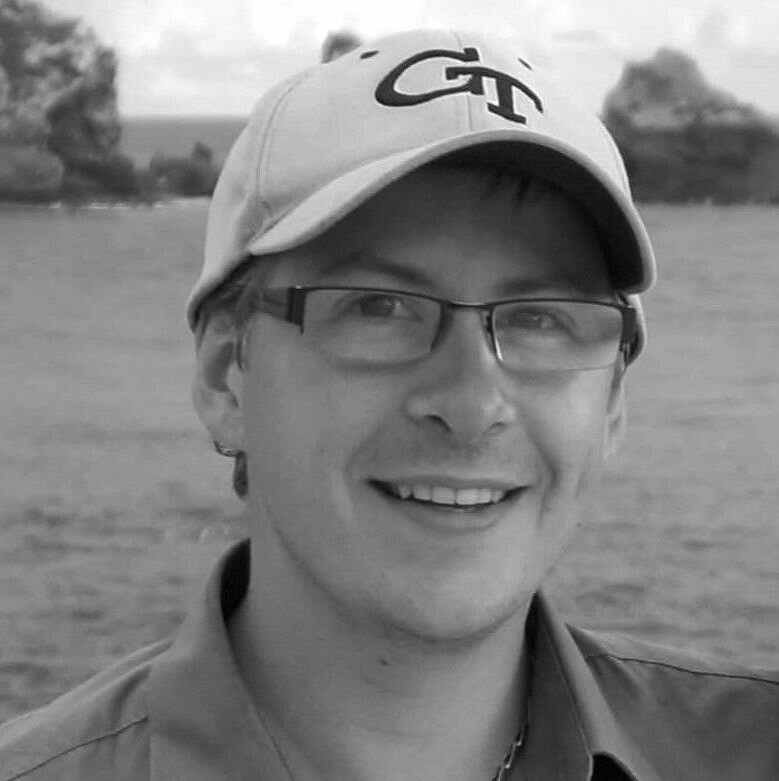
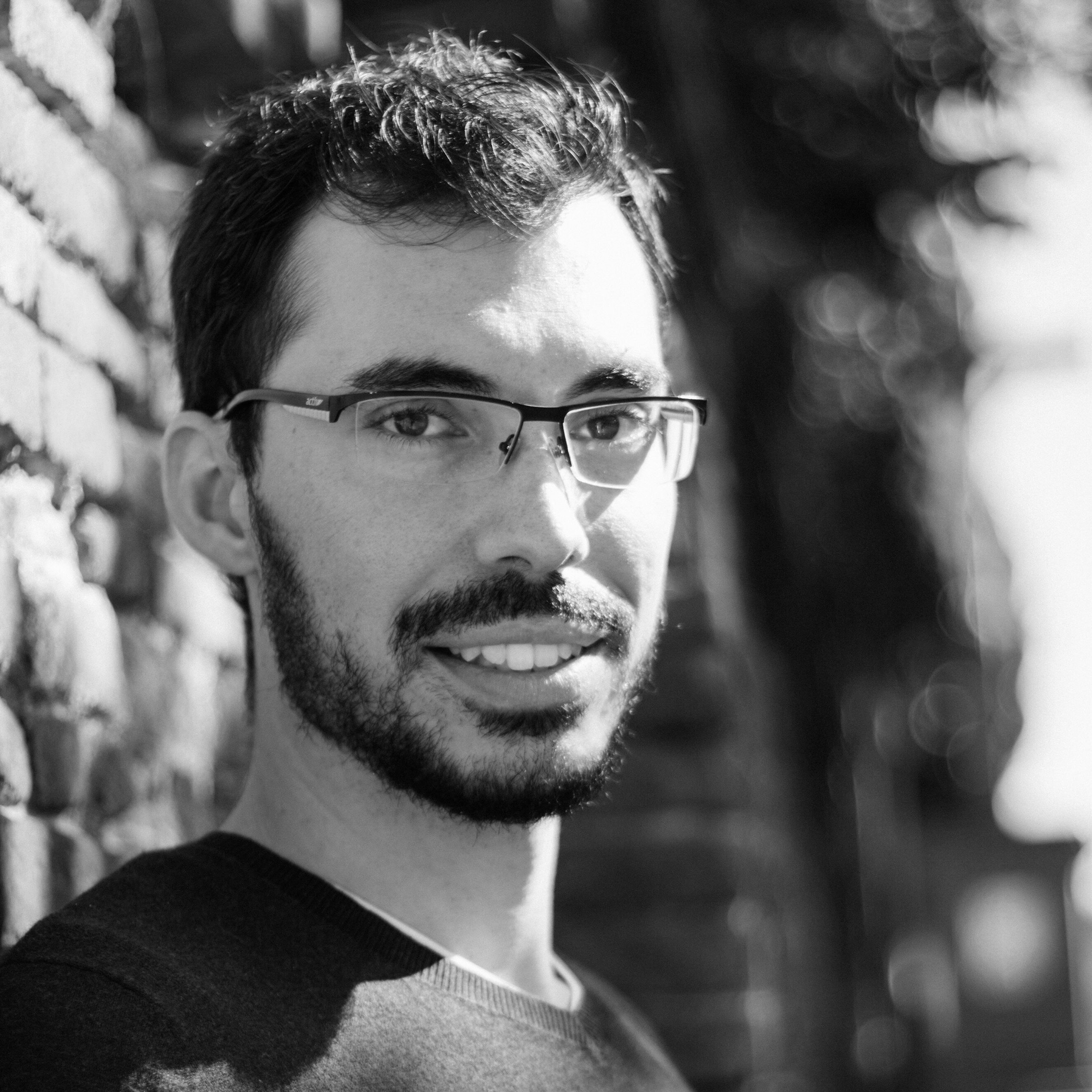
Dr Olivier Balet
Research Coordinator
Dr Olivier Balet is the Chief Technology Officer of Diginext. His main areas of expertise include Mixed Realities, Location-based services, 3D cartographic systems, and interactive storytelling. He is the initiator and has been the co-organiser of the pioneering Virtual Storytelling international conference series that became ICIDS, the major scientific event in the field of interactive storytelling. In that frame, Dr Balet initiated and co-edited the “Virtual Storytelling – Using VR technologies for storytelling” book series in Springer’s Lecture Notes in Computer Science. He is also an accredited and active expert to both the European Commission, from FP5 to H2020, and the Eureka programme. Prior to his current position, he has conducted research on 3D interaction and visualisation at the Toulouse III University. He received his diploma (M.S.) and Ph.D. with honours in computer science (VR specialisation) from the Toulouse III University, France. He is the author and the scientific director of several European funded projects since 1998 (CAVALCADE, VISIONS, V-Man, V-Planet, VISTA, INSCAPE, CRIMSON, V-City, INDIGO, CHESS, MAGELLAN, etc.). He has been Virtual Reality assistant professor at both the Toulouse III University and the Institut Supérieur de l’Aéronautique et de l’Espace high school, program committee member or reviewer for international conferences (Eurographics, ICVS, VRIC, Minitrack, TIDSE, etc.), and is the author of more than 50 papers published in international journals and conference proceedings in his field of research.
Dr Souheir Mili
Project Manager & Technical Coordinator
Dr Souheir Mili is a manager of Research projects at DIGINEXT. Prior to DIGINEXT, she worked on a French TTO where she was an innovation project manager working on information and communication technologies. Within ALSTOM/IFSTTAR she was involved as a technical leader on the SECRET FP7 project working on security recommendation for the railway communication system (GSM-R) in case of jamming attacks. Souheir is currently leading DIGINEXT’s contribution in the EMOTIVE H2020 project that aims to extend the Inscape system with the capacity to produce emotional storytelling to dramatically change how visitors experience heritage sites. Souheir also oversees DIGINEXT contribution to the Shift2Rail programme, and more particularly how travel can be made a cultural interactive experience. She received Ph.D. degree in electronics engineering on 2014 from the University of Lille (France). Her research interests include Signal processing, EMC test facilities, telecommunication and the characterization of EM environments.
Cyril de Mengin Fondragon
Project Manager & Technical Coordinator
Cyril de Mengin Fondragon is a project manager of RTD and Industrial projects at Diginext in Toulouse. His field of expertise lies in virtual training, virtual and mixed reality, location-based experiences and geographic information systems. Prior to his current position, he studied at ENSEEIHT Paris where he obtained his engineer’s degree in computer science and at the Georgia Institute of Technology where he obtained a Masters Degree in Computer Science. He then worked for 11 years at Sagem Defense & Security in Paris, first as a software engineer, then as project manager of various R&D projects in the domain of geographic information systems, simulation and innovative visualisation of geo localised information.
Maxime Chambefort
Software Engineer
Maxime Chambefort is a 3D developer and technical manager on the Visual Studio Editor. After graduation from Université Clermont Auvergne, Maxime started his career in computer science as a developer and quickly focused is evolution in real time 3D computer graphics application. Seven years later his interest in story driven virtual experiences brought him to Emotive project as a Diginext employee. His role on Emotive project went from conception to experience creation support throughout the project lifetime.
Noho Ltd. (Ireland)
Noho produce captivating digital experiences for museum, corporate and broadcast clients. From evocative audio to rich, interactive video, web and 3D, our content informs, educates and inspires audiences, young and old alike. The company was founded in 2009 by Niall O’hOisin and is based in Dublin. Within Emotive, Noho will contribute to the design and production of all multimedia (2D & 3D) assets, with an emphasis on narrative design, character creation and audio story narration. Noho will also participate in communication and dissemination activities on the project.

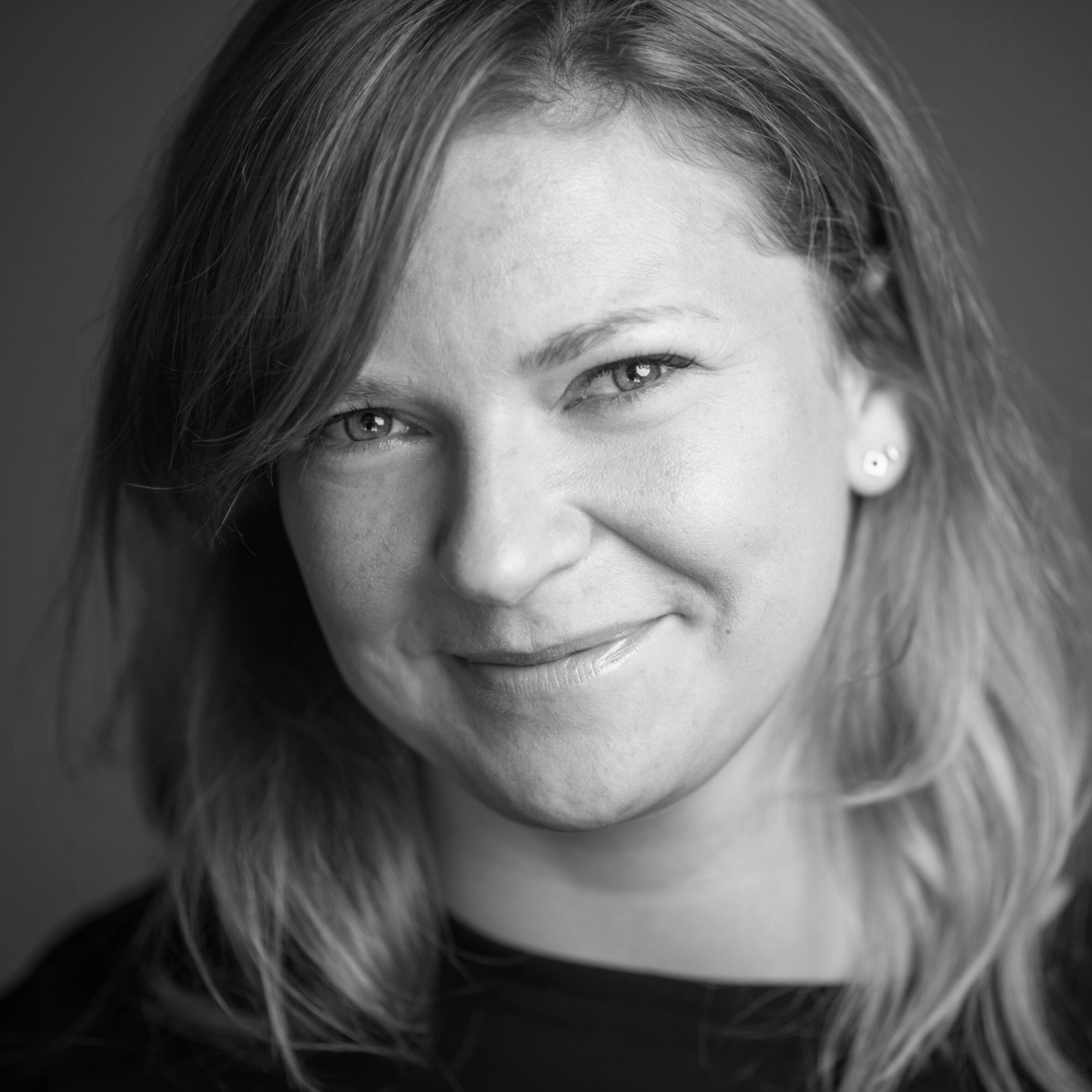
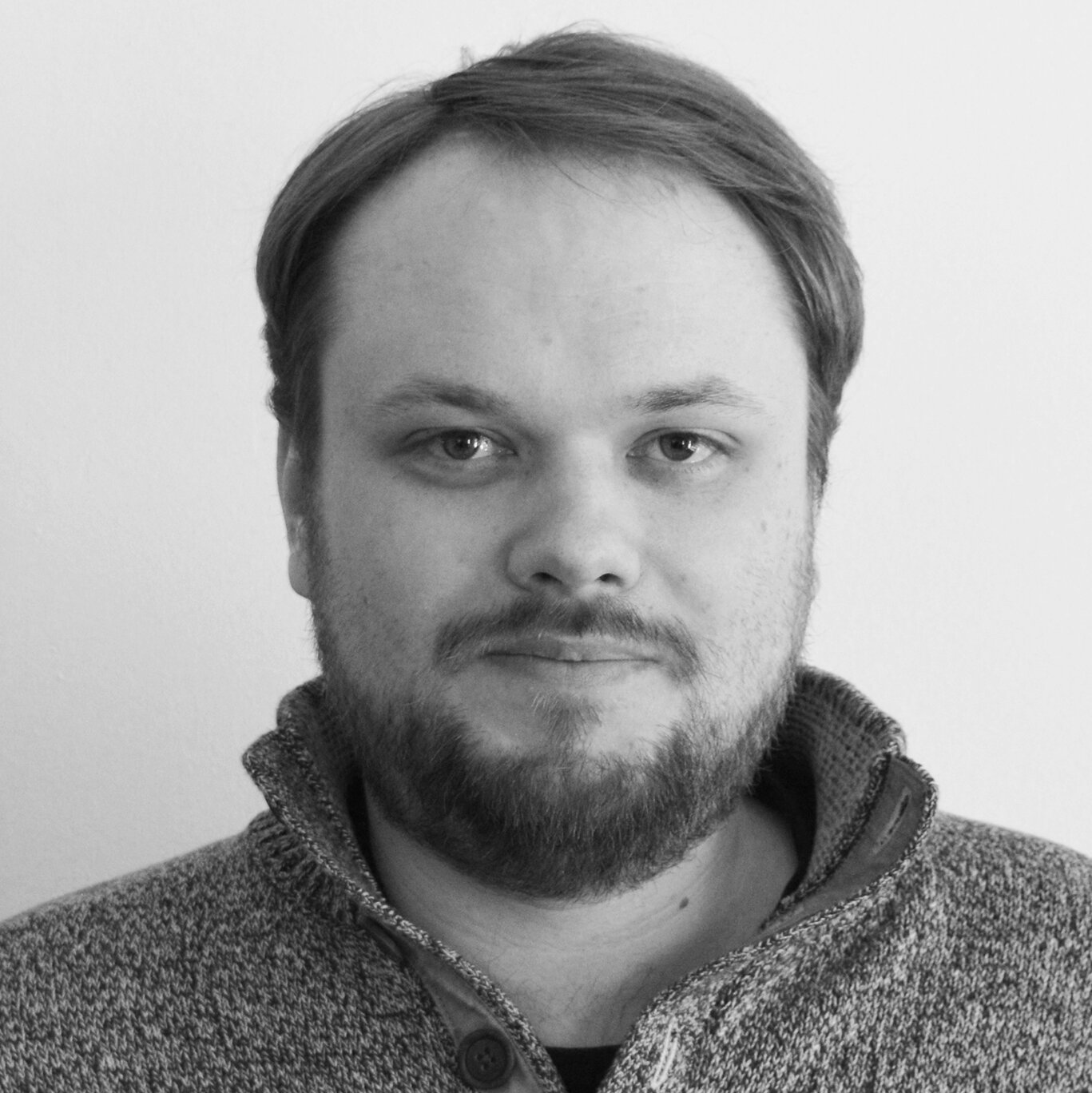
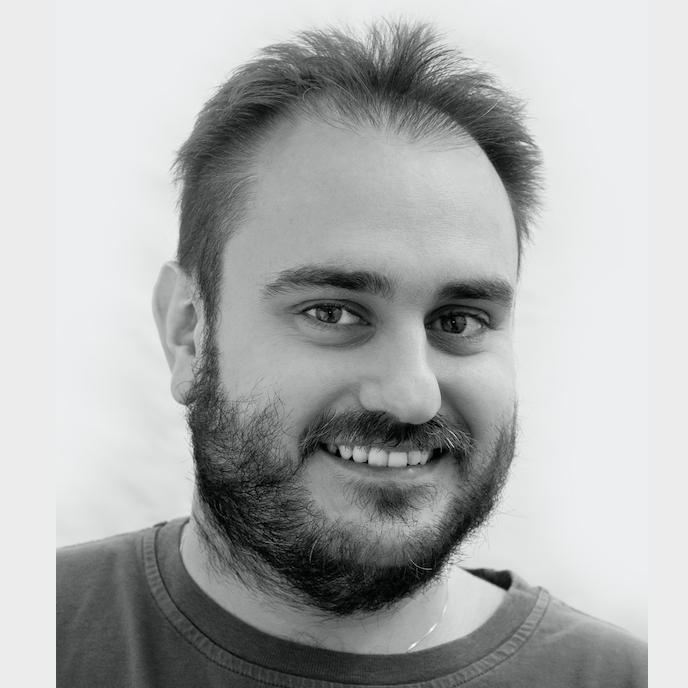
Mr Niall O hOisin
Creative Director
Niall O hOisin is founder and managing director of NOHO. He also acts as creative director, animation director and as the main contact with the client throughout the entire project. He puts together and oversees the creative and technical teams required for each project. Niall has worked in the Post Production industry since 1994 and has been at the forefront of the computer graphics and animation industry in Ireland for the past 20 years, working in Screenscene, The Farm and NOHO. His experience spans 20 years in broadcast graphics and animation for TV and film in Ireland, the UK and across the world. Within the field of virtual heritage he combines his technical and creative background in broadcast graphics, commercials and animation with his degree and interest in history and history of Art. Mr O HOisin will be the main contact for the project and act as creative director for NOHO’s role within their tasks.
Dr. Karolina Badzmierowska
Communication Coordinator
Karolina is involved in a variety of work activities at Noho, from design, through project coordination to communication. She is a Dissemination Coordinator of the EMOTIVE project. Karolina completed a Structured PhD Programme in Digital Arts and Humanities in the Department of History of Art and Architecture, Trinity College Dublin. She has a MA in History of Art and Architecture from University of Limerick and a BA in Art History from University of Gdansk. Karolina’s doctoral research explored digital technologies in art historical research on architectural paintings of the Oude Kerk in Delft and the concepts of online thematic research collections. Her career to date combines strong interests and experience in digital humanities, art history, cultural heritage, museums and design.
Alan Clifford
Alan is Noho’s Lead Developer and is responsible for building all our interactive and web content. Alan studied computer science at DIT, where he focused on computer programming in C++, computer architecture and web development. In 2013 he graduated from the Dun Laoghaire Institute of Art, Design and Technology with a Bachelors in Multimedia Systems and Web Engineering (Hons).
Alan is directly involved in the EMOTIVE website development.
Klemens Kopetzky
3D Artist
Klemens is Noho’s lead 3D artist and head of Noho’s technical department. He is the goto person for anything related to 3D, tracking, scripting, point clouds or computers in general. He has been working in Unity for the past five years, but depending on the project will work also as an animator or VFX artist. He has a strong artistic mind as well as a deep technical mindset. His work covers a broad spectrum of areas, including advertisements, effects for short films, interactive programming, historical visualisations and exhibition content creation. Klemens holds a Honours BA degree in Digital animation from the SAE Institute in Vienna, and started his 3D career in 2005. He worked for Austria’s largest postproduction company, K-Effects, before moving to Ireland in 2007.
University of Glasgow (United Kingdom)
Founded in 1451, the University of Glasgow has a tradition of excellence as the fourth oldest university in the UK and a member of the elite Russell Group of leading UK research universities. Glasgow will contribute to EMOTIVE through the Humanities Advanced Technology and Information Institute (HATII) at the School of Humanities and The Hunterian, the museum of the University of Glasgow. HATII has an excellent track record in attracting research funding in digital humanities, digital heritage, and user evaluation projects from the RSE, AHRC, ESRC and the EU. Glasgow brings to EMOTIVE in-depth understanding of the needs of both cultural heritage professionals, as well as diverse visitor groups and end users. It will contribute numerous research, user-centred design and production, and evaluation activities to the project, taking advantage of the real cultural heritage context of The Hunterian’s Antonine Wall display to collect user requirements and evaluate EMOTIVE prototype tools.
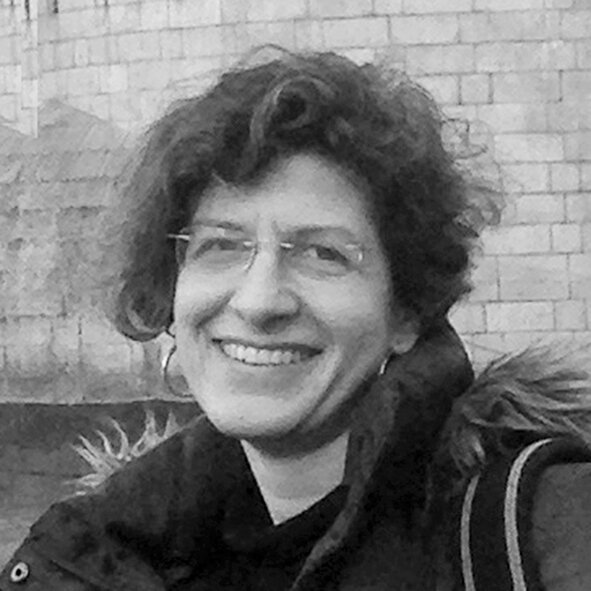

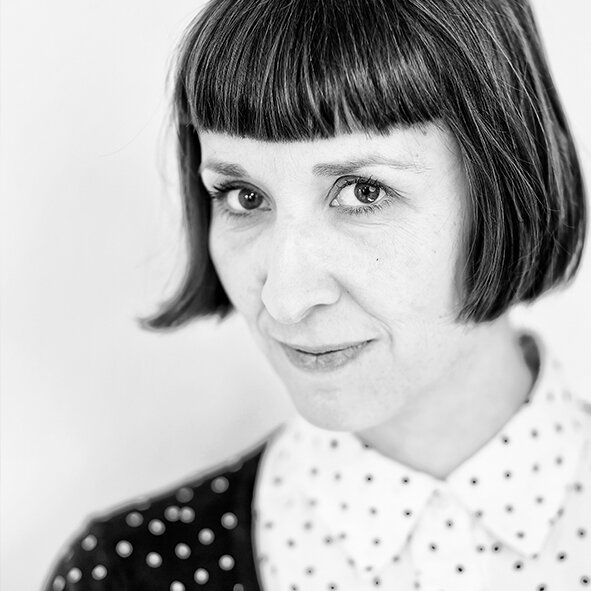
Dr Maria Economou
Work Package 9 (Evaluation) Leader
Professor Maria Economou is Professor of Digital Cultural Heritage/Curator, a joint post at the University of Glasgow shared between Information Studies and The Hunterian Museum, where she is responsible for the digital strategy. She studied Archaeology and History of Art at the Aristotle University of Thessaloniki, Greece (1991), carried out an MA in Museum Studies (with distinction) at the University of Leicester, UK (1992) and completed her doctoral research at the University of Oxford (1998) with a scholarship from the Lambrakis Research Foundation, Athens. She is interested in the use and evaluation of all forms of digital technology and new media in cultural heritage and museums. She coordinated the Scottish Network on Digital Cultural Resources Evaluation (ScotDigiCH, 2015-16), funded by the Royal Society of Edinburgh, is Co-Investigator (Co-I) in the EU MCSA POEM Innovative Training Network on Participatory Memory Practices (2018-22) and in the AHRC/ESRC-funded Scottish National Heritage Partnership (2018). Professor Economou is on the Editorial Board of the ACM Journal on Computing and Cultural Heritage (JOCCH), Museum Worlds, and MuseumEdu. She is elected Vice-Chair (2017-20) of the Executive Board of Universeum, the European. Academic Heritage Network, the professional body for university museums in Europe; invited founding member (2016-17) of the Impact Task Force of Europeana, the EC digital platform for cultural heritage (CH); and founding member (since 2015) of the Digital Transformations group of Museums Galleries Scotland. She was previously Associate Professor, Museology and New Technologies at the University of the Aegean (2003-13), where she directed the Museology Research Laboratory and worked at the University of Manchester (2000-2003) and the Pitt Rivers Museum, University of Oxford, as Assistant Curator- Information Technology (1995-1997).
Professor Economou leads WP9, overseeing the user evaluation and testing of the EMOTIVE tools and pilot experiences in a real cultural heritage context with a variety of end users and also contributes to WP3 on the analysis of user requirements and scenarios.
Dr Hilary Young
Research Assistant
Dr Hilary Young is an experienced curator of contemporary history with a specialist interest in oral history, narrative and digital curation. She has over 10 years active research experience within academia, museums and archives. Hilary gained her PhD ‘Representation and Reception: An Oral History of Gender in British Children’s Comics and Magazines between 1940 and 1960’ in 2006 from the University of Strathclyde. Prior to joining EMOTIVE Hilary was Digital Curator at the Museum of London (2012-2016) where she wrote and developed the museum’s first Digital Collection Framework as a product of the Arts Council England Opening Up to Digital Environments funded programme. As Digital Curator Hilary developed and managed several experimental collecting projects that explored questions of access, value and reuse of digital objects, such as #Citizencurators a project that explored the value and issues involved in collecting Tweets. Hilary’s publications include ‘How can museums preserve our digital heritage?’ in Wired 16 July 2012 and she was invited to present on ‘Opening Up To Digital Environments at the Museum of London’, at the European Museum Academy, Brescia, Italy, 2014. Hilary is a Trustee of the Oral History Society and sits on the Archives, HE and Museums sub-committees. Hilary brings a range of experience to EMOTIVE drawing on her previous roles in museums, digital curation and narrative storytelling.
Hilary assists with WP3 namely refining user requirements and design of visitor experiences for the Antonine Wall display at The Hunterian, as well as helping to develop WP9 Evaluation Framework and Guidelines.
Dr Emilia Sosnowska
Research Associate
Emilia is an early career digital art researcher, theoretician and a freelance curator with a particular interest in emerging technologies and their impact on creative practices and user experience.
She received her PhD from the University of the West of Scotland in 2017. Her PhD thesis, ‘Ways of Sensing: Multisensory Approaches to Interactive Media Art Practice and Perception’, examined recent developments in interactive media art and their impact on multisensory participation via a combination of theoretical inquiry and field research. Before joining EMOTIVE Emilia assisted Glasgow Museums digital media department in development of digital interpretation for the Burrell Renaissance project, as well as TCONE 2. She explored new ways of digital interpretation, active participation through interaction and ever evolving methods of enhancing visitor experience through application of digital technologies.
Her main work within EMOTIVE is on the design, user evaluation and testing of the EMOTIVE tools and pilot experiences in a real cultural heritage context with a variety of end users, using as a case study the Antonine Wall display of the Hunterian Museum.
Alumni team members
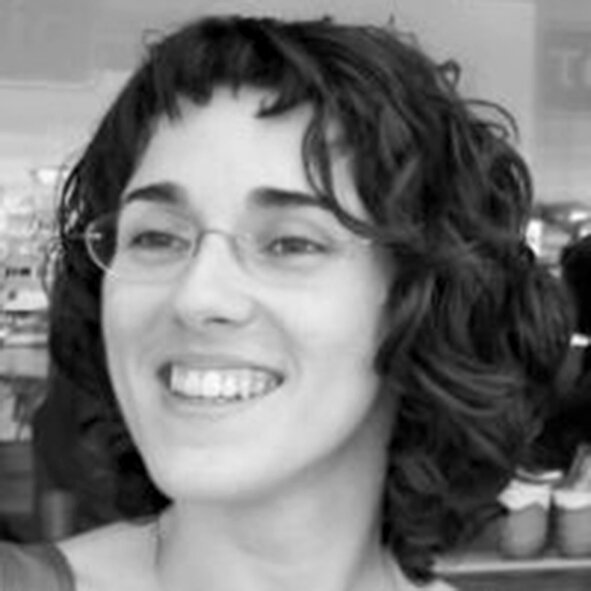

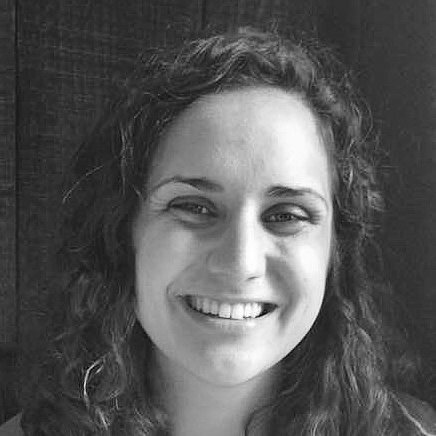
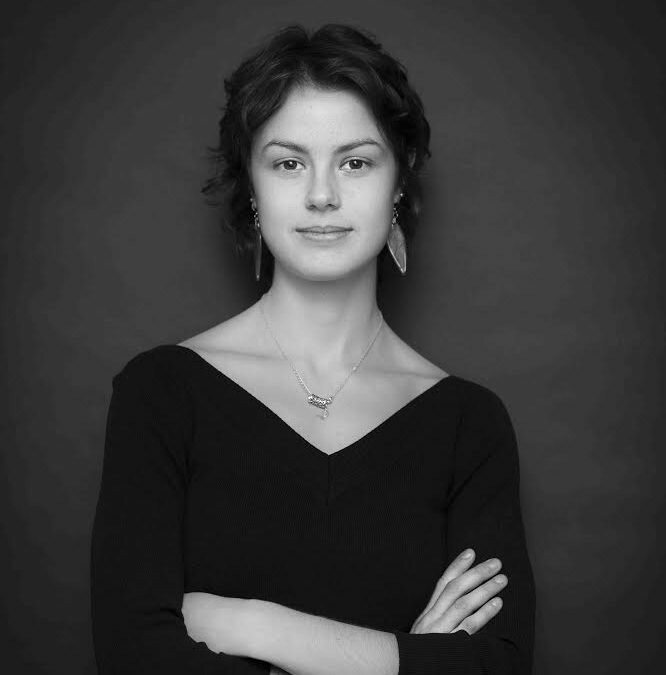
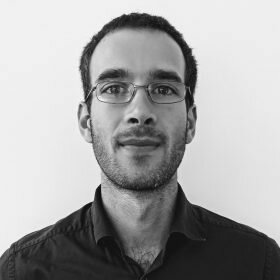



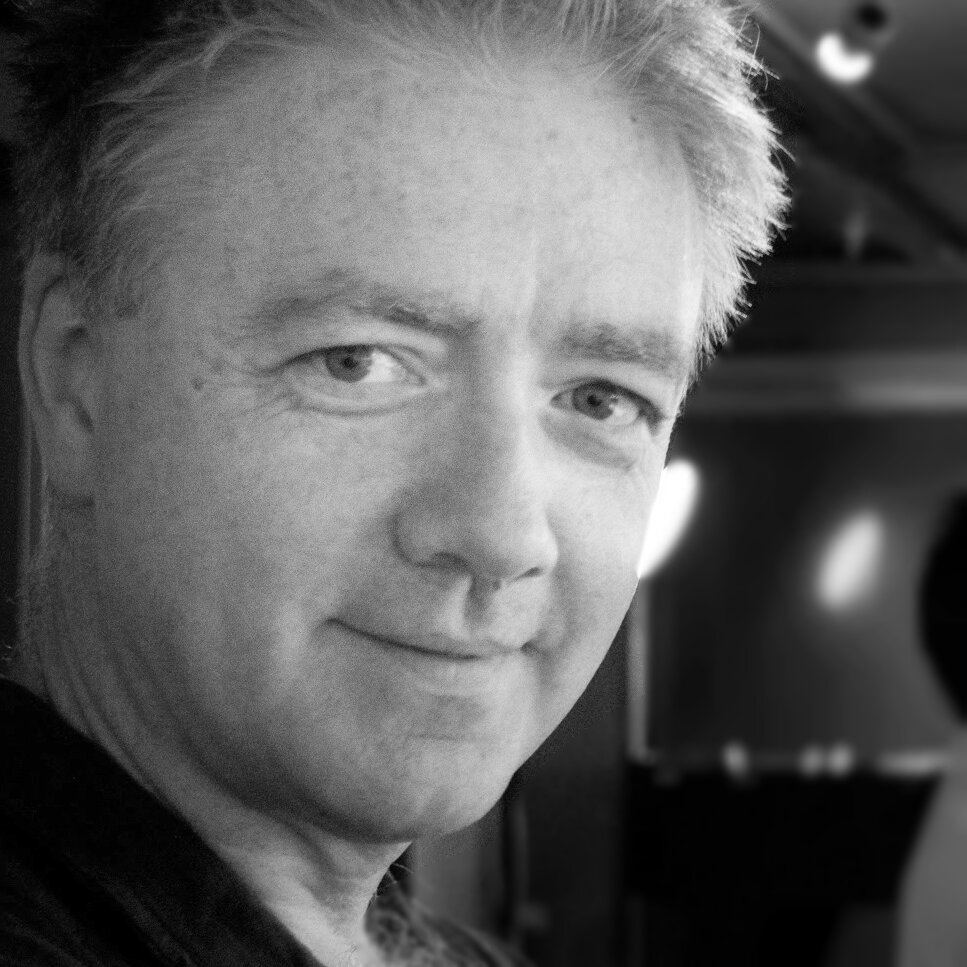
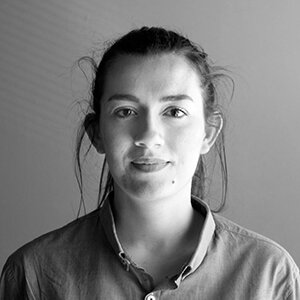
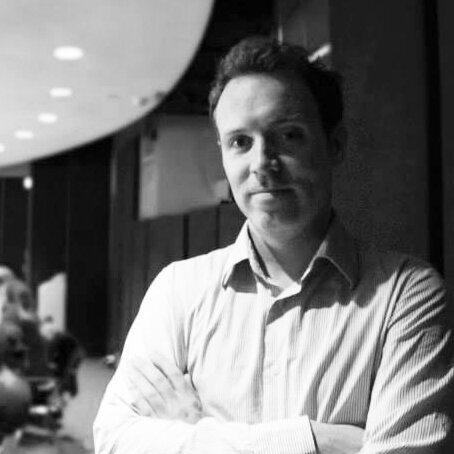
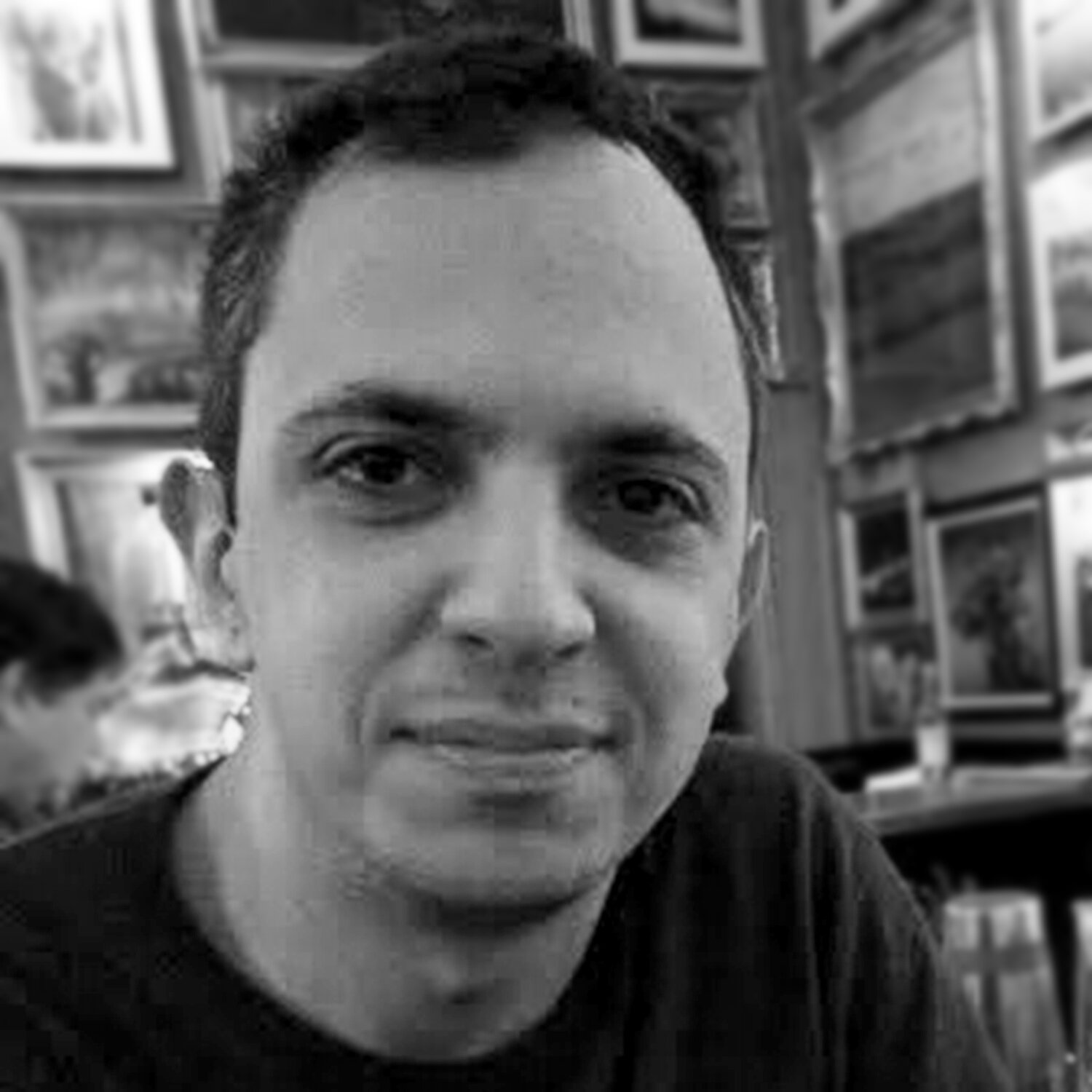
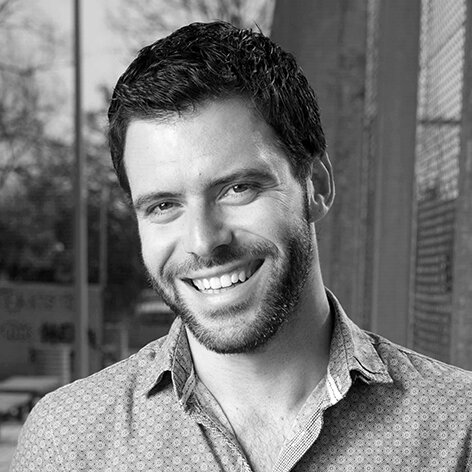
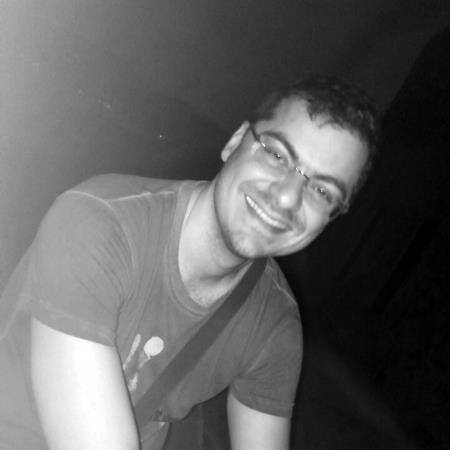

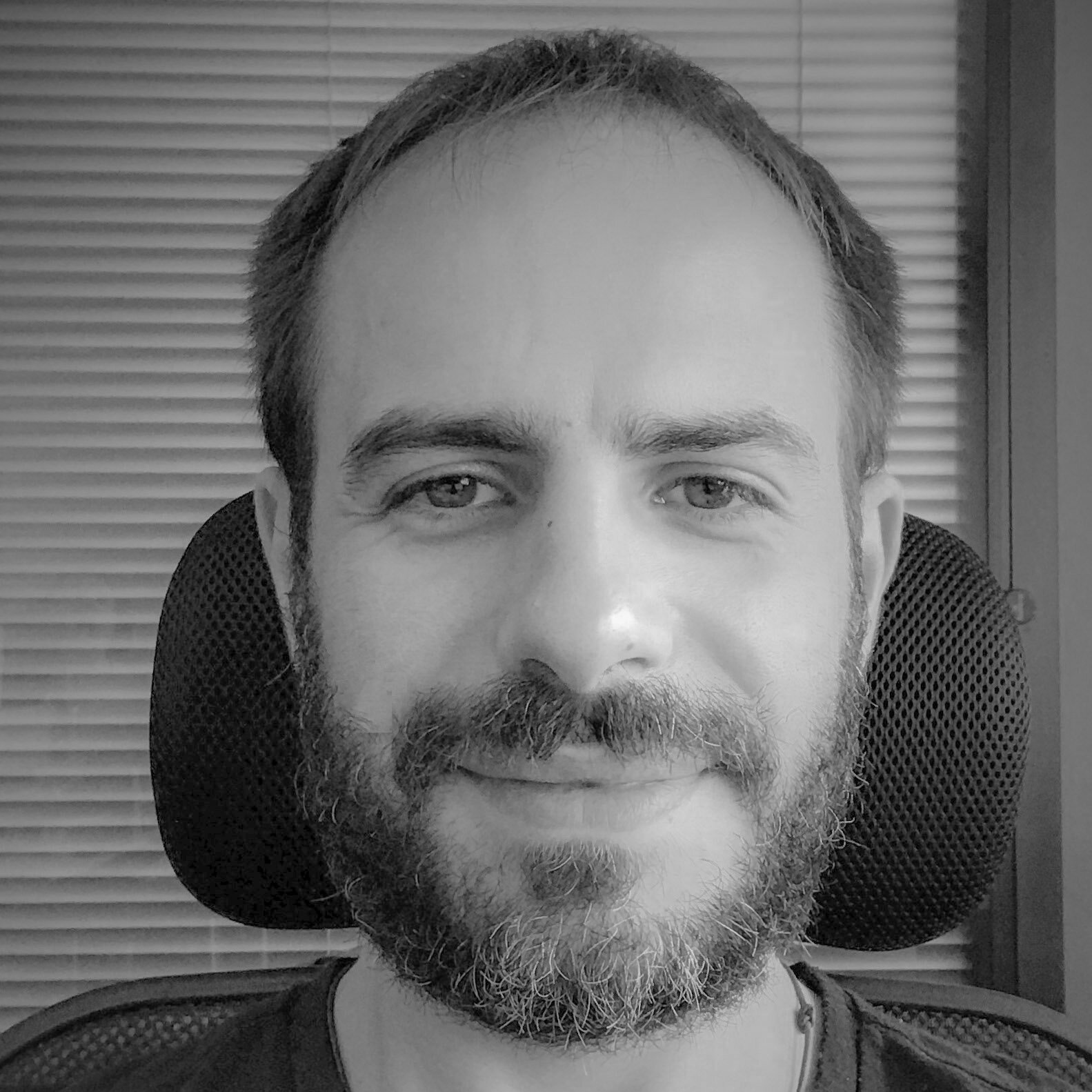
Dr Laia Pujol-Tost
Research Associate / York and UGLA Teams
Dr Laia Pujol-Tost is Senior Researcher at Pompeu Fabra University of Barcelona, where she leads the EU-funded CSA ViMM. She studied at the University of Bordeaux-I (Maîtrise in Prehistory, 1997) and at the Autonomous University of Barcelona (Degree in History, 1999; PhD in Prehistoric Archaeology, 2006). Her field of research is the design and evaluation of digitally-mediated experiences for Cultural Heritage, mostly related to Virtual/Augmented Reality, Digital Interactive Storytelling, and Tangible/Full body Interaction. She has worked both in the public sector (Acropolis Museum, UoA, UoM, UAB, Barcelona Provincial Council) and the private sector (Tecnalia Foundation), thanks to several national (FI, BP, PBR, BE) and international (Marie Curie IEF, ERG and EST; British Academy) fellowships, grants, and contracts linked to European projects (CHIRON, CHESS, Route des Origines). She has been invited to collaborate with various national projects (ARACNE, Mob-IncluApp, SGR1193, MIDARC) and EU-funded projects (Innovarch, Magellan, eCultValue, Zeitgeist-EXARC). She has also taught at undergraduate and postgraduate level at several Spanish and European universities (UdG, UAB, UOC, UoM, UoN, UoA, UoY), either as associate or invited lecturer. She is member of several scientific committees and editorial boards (VAR, Frontiers in Digital Humanities, VHN, DAACH, SDH, TAG, Euromed, EGCH, CAA, CAA-GR), and collaborates as scientific reviewer with several journals (Heritage & Society, ToETC, IJHS, JOCCH, JVWR, Museum & Society, CJCCS); publishing houses (Ashgate); and conferences (IDC, British HCI, Nodem, DH, NordiCHI, EGCH, Archaeological 2.0 IJHS, CAA, ACE). She has been member of EAA, SEAV, ACM, and is permanent member of CAA College.
Dr Pujol-Tost was previously a researcher for both the York and UGLA teams on WP3 (Virtual Museum design) and WP9 (Evaluation).
Angeliki Tzouganatou
Researcher
Angeliki Tzouganatou is passionate about cultural heritage and emerging digital technologies. She studied Archaeology and History of Art at the National Kapodistrian University of Athens and completed the MSc in Digital Heritage at the University of York. For her MSc dissertation she designed, created and evaluated a chatbot for the archaeological site of Çatalhöyük as part of the EMOTIVE Project. She continues to participate in EMOTIVE as a research assistant focused on the further design and development of the chatbot. Angeliki has working experience in various cultural heritage institutions including the Benaki Museum (exhibition assistant), the Goulandris Natural History Museum (museum education) and Leeds Museum and Galleries (digital curation). Her scientific interests include the design, development and evaluation of digital interactive and participatory experiences for museums and heritage sites.
Sophia Mirashrafi
Camille Boulais-Pretty
Camille Boulais-Pretty is a BSc Archaeology student at the University of York. In January 2017, Camille started Tours in a Dish (embed link: https://www.toursinadish.
Laurent Vernaut
Laurent Verneaut is a 3D engineer in DIGINEXT’s Simulation & Virtual Reality Division. He received his French Engineering Degree from the Ecole Nationale d’Ingénieurs de Brest in 2008. His main fields of expertise include 3D rendering optimisation and parallel computing. He has been working on the geographic information 3D rendering system at the heart of CS’ VirtualGeo product.
Loïs Brun
Loïs Brun is a software engineer at Diginext Toulouse. He owns a “VideoGame Director” degree from Supinfogame-Rubika school and worked at Ubisoft Montpellier studio. He was also the lead developer of Wosomtech’s “EasyBuild” solution, an ambitious mixed reality application designed for building professionals. He specialises in mixed reality experiences and game production and will take part in the development of the EMOTIVE Authoring Tool.
Dr Dimitris Vassiliadis
Coordinator at strategic level, Innovation and Exploitation manager
Dr. Dimitris Vassiliadis is the Head of EXUS Innovation. Dimitris is an Electrical and Electronics Engineer and has obtained his degrees from the University of Surrey (BEng, MSc) and the National Technical University of Athens (PhD). Since he joined EXUS in September 2007 he has taken particular interest in seeing the implementation of data-centric approaches for fostering growth in vertical market sectors. His areas of activity include Future Internet and Data Technologies for applications in Tourism, Finance, Creativity and Health. Furthermore, he is actively involved in the Secure Societies initiative of the European Commission, working in specific domains to enhance the safety of citizens, leveraging the advances of the Internet and Data analytics technologies. He is overseeing the coordination and strategic steering of 11 on-going FP7 projects and an overall portfolio of 200+ active research partners. Dr. Vassiliadis has published several scientific papers in International Journals as well as in International Scientific Conferences and Workshops.
Rémi Courtel
Technical Manager
Rémi Courtel is a technical manager of RTD projects at Diginext in Toulouse where he has coordinated the VASCO project. His field of expertise lies in simulation, virtual and mixed reality, location-based experiences and geographic information systems. Prior to his current position, he studied at ESIEE Paris where he obtained his engineer’s degree in computer science and electronics. He then worked for 6 years at Thales Communications & Security in Paris, first as a software engineer, then as technical manager of various R&D projects in the domain of modelisation, simulation and innovative visualisation of geo localised information.
He will act as the work package leader of the Authoring Tool in EMOTIVE and will be involved in the conception and development with the Diginext development team.
Breffni O’Malley
Breffni O’Malley is Head of Content at NOHO. He has an MA in Modern English from University College Dublin and over 15 years’ experience as an instructional/narrative designer, writer and project manager. Breffni has designed and written online learning content for a wide variety of audiences and environments across a very broad range of subjects. He designed, supervised and edited all content for the award-winning Medieval Dublin DVD, aimed at 9-12 year olds. He has designed and written vocational training content for school-leavers, business skills and technical content for finance and software industries, historical content for heritage centres, interactive game bibles for gaming companies and promotional web and video content for advertising agencies. Breffni is an experienced producer and project manager with experience of managing and motivating multi-disciplinary teams. Mr O’Malley will be involved in all aspects of the narrative design and implementation of narrative elements within all the content.
Stella Doukianou
Stella Doukianou is a Research Consultant at EXUS. She is involved in EU projects related to games and creative technologies. Stella holds an M.Sc. in Design and Digital Media from University of Edinburgh and she is now finishing her Ph.D. in Computer Science at the Serious Games Institute of Coventry University. Previously, Stella has worked in several H2020 and FP7 projects, mainly in the serious games and gamification area. Her research interests include games, gamification, behavioural economics and mixed realities.
Frank Lynam
NOHO Team
Frank is the head of interactive development at NOHO, covering web-based work, touchscreens and interactive environments. Frank has a PhD in Digital Arts and Humanities from Trinity College, a MPhil in Mesopotamian Archaeology from University of Cambridge and a BA in Ancient History and Archaeology and Italian from Trinity College Dublin. Frank has over a decade of experience working at management level in the ICT industry. During this time, he led the research and development of a number of commercially successful hardware and software products. Over the last few years he has taught a number of undergraduate and postgraduate digital humanities and digital heritage modules and workshops on data mining and visualisation topics at Trinity College Dublin, Maynooth University and Queen’s University Belfast. Mr Lynam will be involved in all technical aspects of the design and implementation of the applications and assets
Dr. Yannis Katsaros
Product Development Manager
Dr. Yannis Katsaros joined EXUS London office in 2014 in order to kick-start the UK part of the team leveraging on his experience with R&I projects. Yannis is a dedicated to excellence ICT Research and Innovation Manager, always excited about simple ideas with huge impact. Prior to EXUS he was working as a Business Development Manager for VELTI, heading the company’s efforts in European co-funded research projects. He has also worked as a consultant for ATC in Athens and as an R&D Engineer for HW Communications in Lancaster, UK. Yannis has a PhD in Network Security and an MSc in Communications Engineering, both from Lancaster University as well as a BEng in Electronic Engineering from the University of Surrey. Yannis is responsible for over 8M Euro worth of won research subsidies during his career in the industry. Among other roles, he has participated as Project Coordinator, Scientific Coordinator and Exploitation manager in numerous UK National, Greek National, and EC FP6, FP7, H2020 projects.
Dr Ioannis Komnios
Quality Manager
Dr. Ioannis Komnios is a Senior Research Consultant at EXUS. Since joining EXUS in 2016, Ioannis has been steering two H2020 projects on the secure storage and exchange of eHealth data and big data respectively, being the coordinator of a multi-partner project. In parallel, he participates in a COST action on resilient communication services as a Management Committee member. Previously, Ioannis has been Work Package leader, Technical leader and researcher in several H2020, FP7 and ESA-funded projects, mainly in internetworking in information-centric and delay/disruptive tolerant environments. Ioannis holds a PhD in Computer Networks from the Democritus University of Thrace, Greece, along with a M.Sc. and a 5-year Diploma in Electrical and Computer Engineering from the same department. His research interests include alternative networks and global Internet access initiatives, as well as data security.
Mr Spiros Trougakos
Technical leader
Spiros Trougakos is a software engineer at EXUS. He holds a n M.Sc. Degree in Management and Economics of Telecommunication Networks and a B.Sc. Degree in Informatics and Telecommunications from the University of Athens. During the past years he has been a member of the Network operation Center of the Univeristy of Athens, involved in a number of projects sponsored by the Greek Academic Network, whereas in the past he has worked as a software Engineer, for major Companies including Intralot S.A. and Schibsted Media Group. He is currently a member of the EXUS innovation team, participating in numerous projects.
Theodoros Karnaros
Member of the technical team
Theodoros Karnaros is a Data Engineer at EXUS. He holds a Diploma in Electrical & Computer Engineering from the National Technical University of Athens alongside with an MSc in Data Analytics from the University of Warwick. As part of his MSc thesis he did research on machine-learning techniques for solar energy forecasting and developed several statistical and machine-learning models to predict the power output from photovoltaic plants. He has been awarded a prize for having the best dissertation in his MSc year group. Since he joined EXUS in September 2016 he has been involved in the Living Market EU project setting up the big data infrastructure.
Mr Giannis Neofotistos
Financial Officer
Neofotistos Giannis is working as a Financial Analyst at EXUS S.A. since February of 2014. He is a partly qualified chartered accountant with seven year experience, working as an external auditor in a Big four in highly respectable and demanding projects. He obtained his Bachelor Diploma in Economic science from National and Kapodistrian University of Athens and he is in on the process for the completion of ACCA professional qualification. He has a sound experience in IFRSs, local GAAP and Internal Controls. He is acting diligently in line with professional standards, maintaining his technical knowledge and soft skills at a high level. He works efficiently delivering high quality work, ensuring the achievement of milestones and objectives.
Cultural Partners
Çatalhöyük
One of the most important archaeological sites in the world, Çatalhöyük is a densely packed Neolithic (New Stone Age) settlement in central Turkey which dates back 9000 years. Inscribed as a UNESCO World Heritage Site in 2012, Çatalhöyük now sees more than 20,000 visitors annually, and has been the subject of scientific investigation for nearly 60 years. Researchers from around the globe travel to the site to study its vast landscape of buildings, remarkable ways of life, and its many exquisite works of art and craft. Together, visitors and researchers are working to pioneer new archaeological, conservation and curatorial methods in order to advance our understandings of human life in the past.
‘The Antonine Wall: Rome’s Final Frontier’ Display at the Hunterian Museum, University of Glasgow
The Hunterian is one of the leading university museums in the world. Founded in 1807, it is Scotland’s oldest public museum and home to one of the largest collections in Scotland. These have been Recognised as a Collection of National Significance and include over 1.5 million items, among which the outstanding Roman artefacts from the World Heritage site of the Antonine Wall. Built around AD 142 in the reign of the Roman emperor Antoninus Pius, the Antonine Wall ran coast-to-coast across Scotland from the Clyde to the Firth of Forth and was the most northerly frontier of the Roman Empire. Whether a symbol of Roman power intended to celebrate victory over the northern tribes or a barrier to control trade and movement, the Antonine Wall was abandoned by the Romans from the late AD 150s onwards. This permanent gallery at the Hunterian Museum, located at the entrance gallery, showcases the largest collection of objects recovered from the site. The displays of spectacular monumental sculpture, together with a rich array of military and civilian artefacts from the wall, some unique to Roman Britain, explore the impact of the Romans on the Scottish landscape and its peoples and questions why the wall was constructed and then abandoned so quickly. The display also reflects the story of the rediscovery of the wall with over three centuries of collecting and research by the University of Glasgow on this World Heritage Site.

